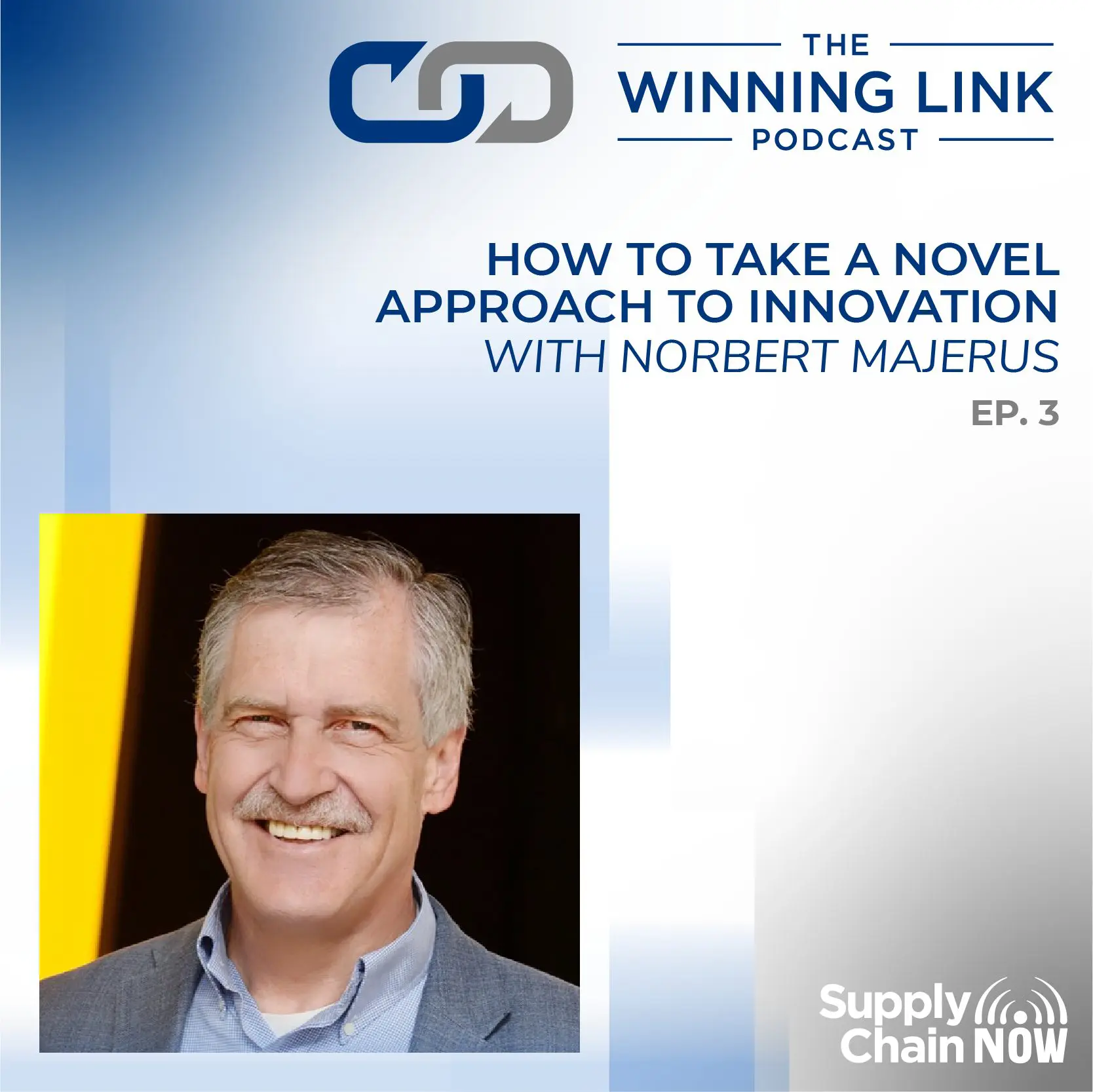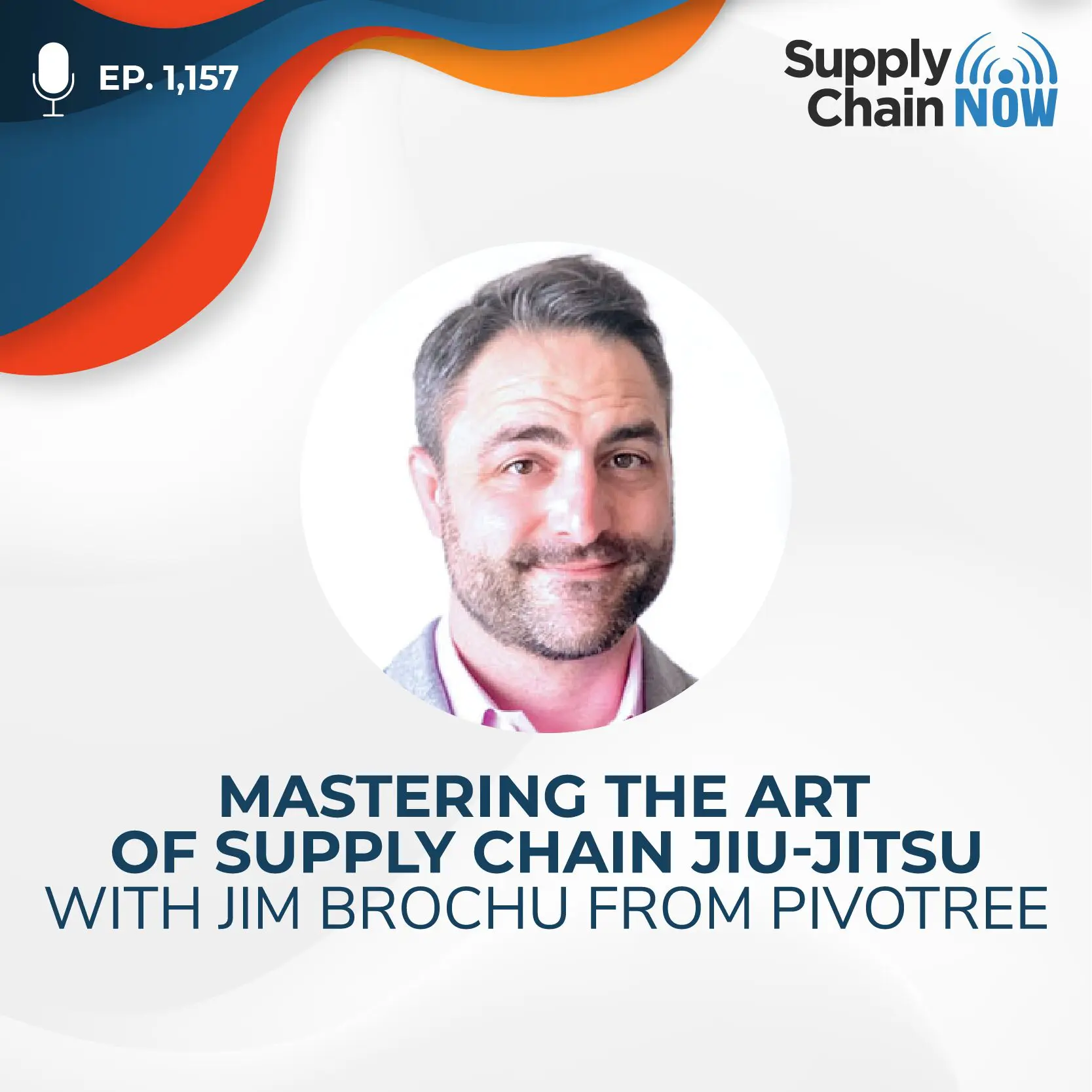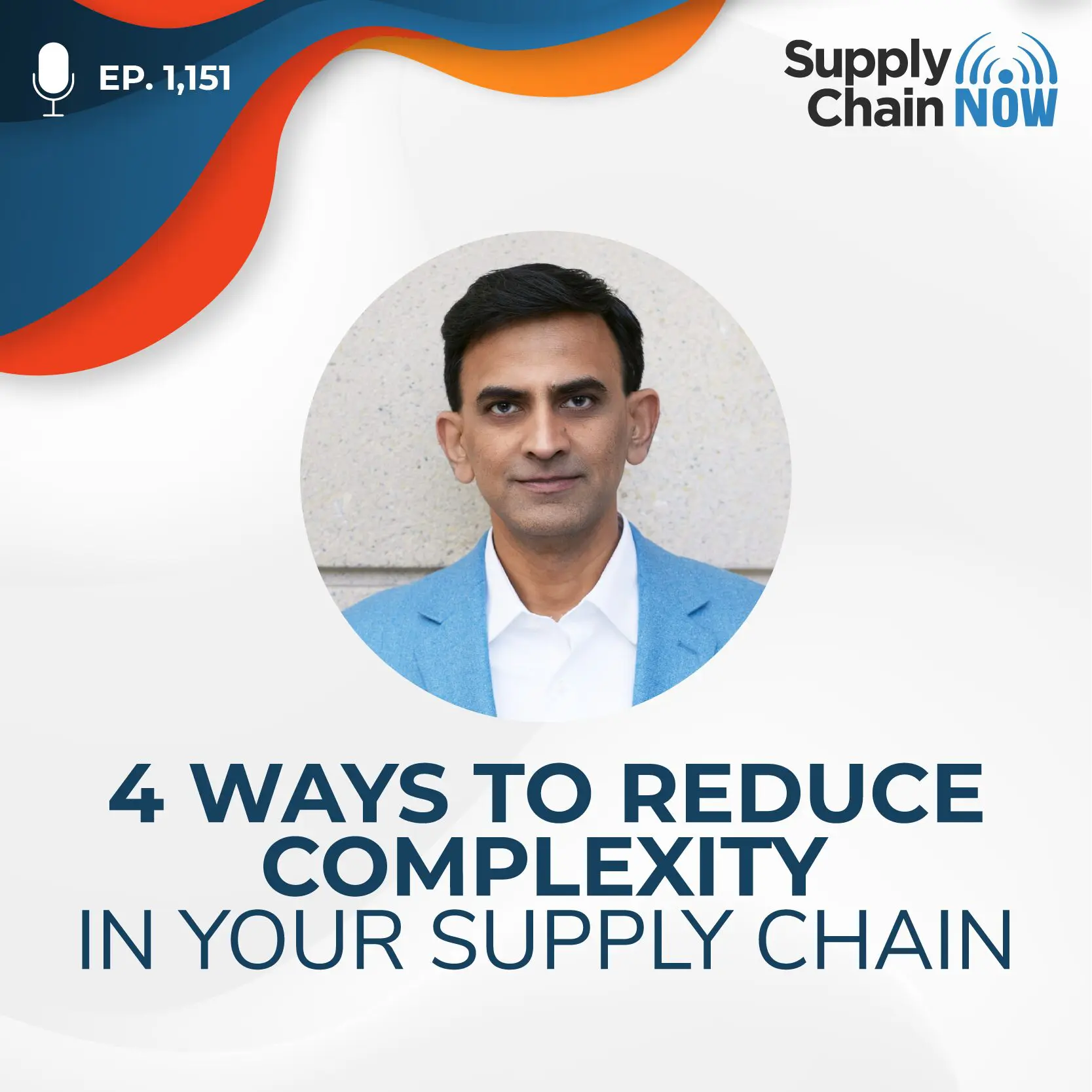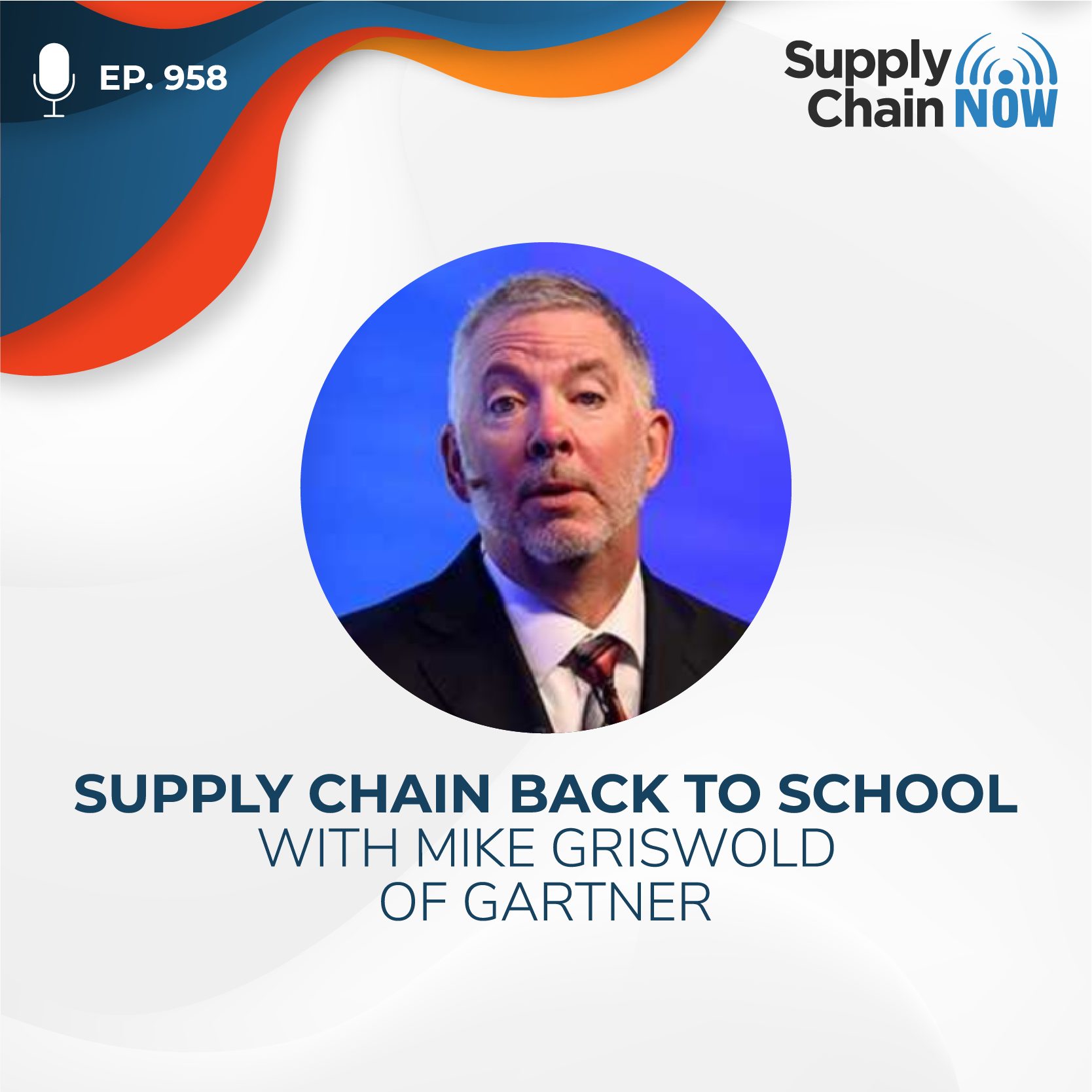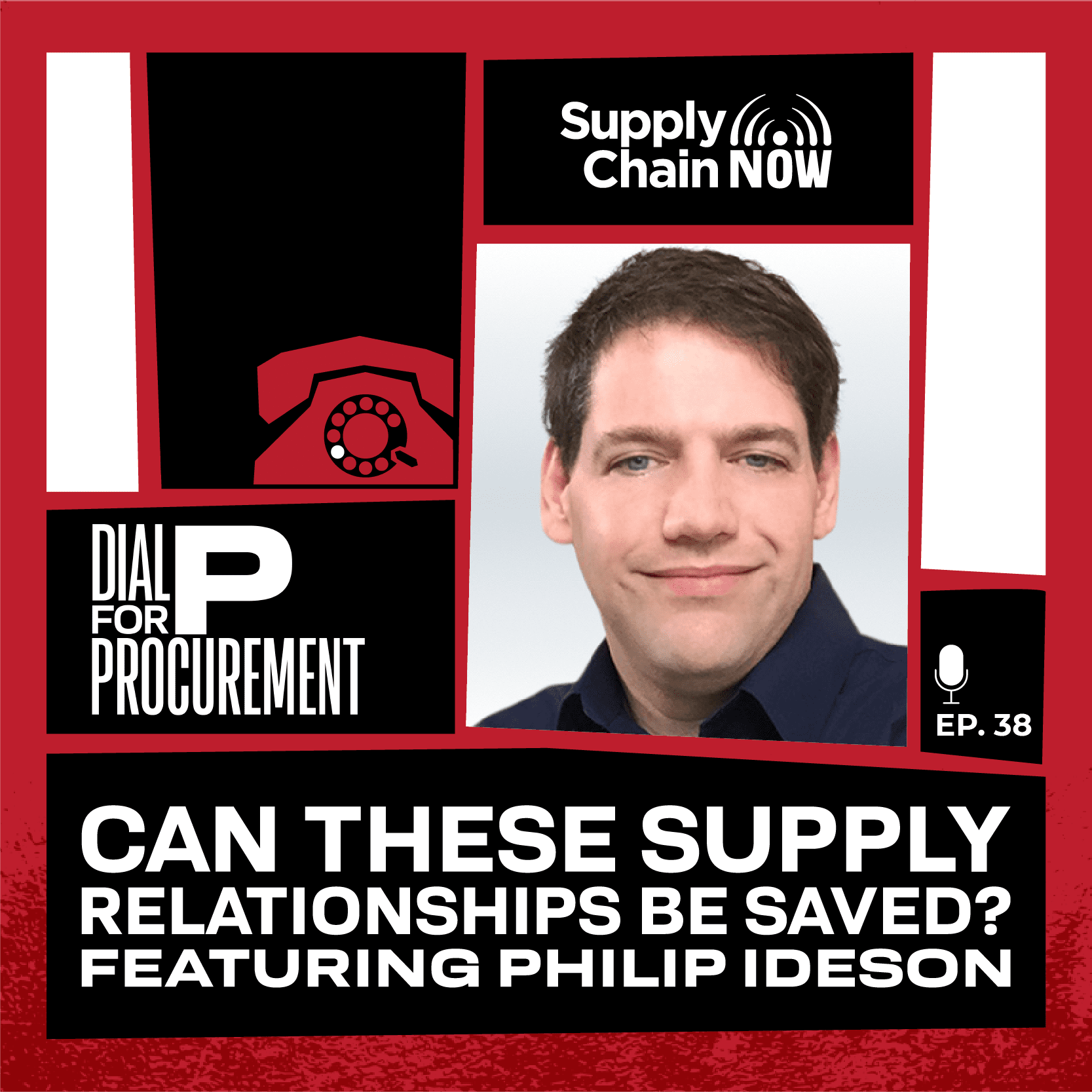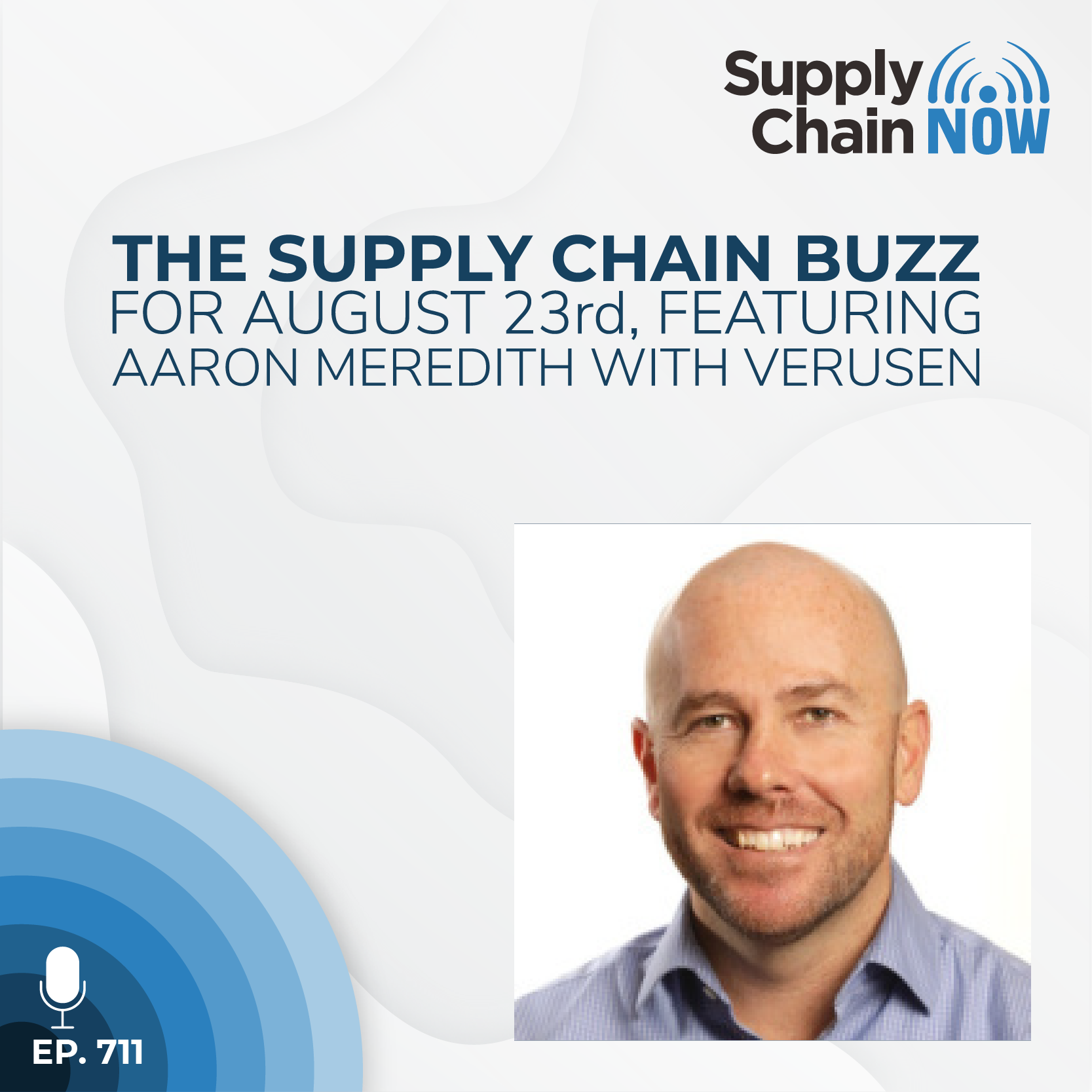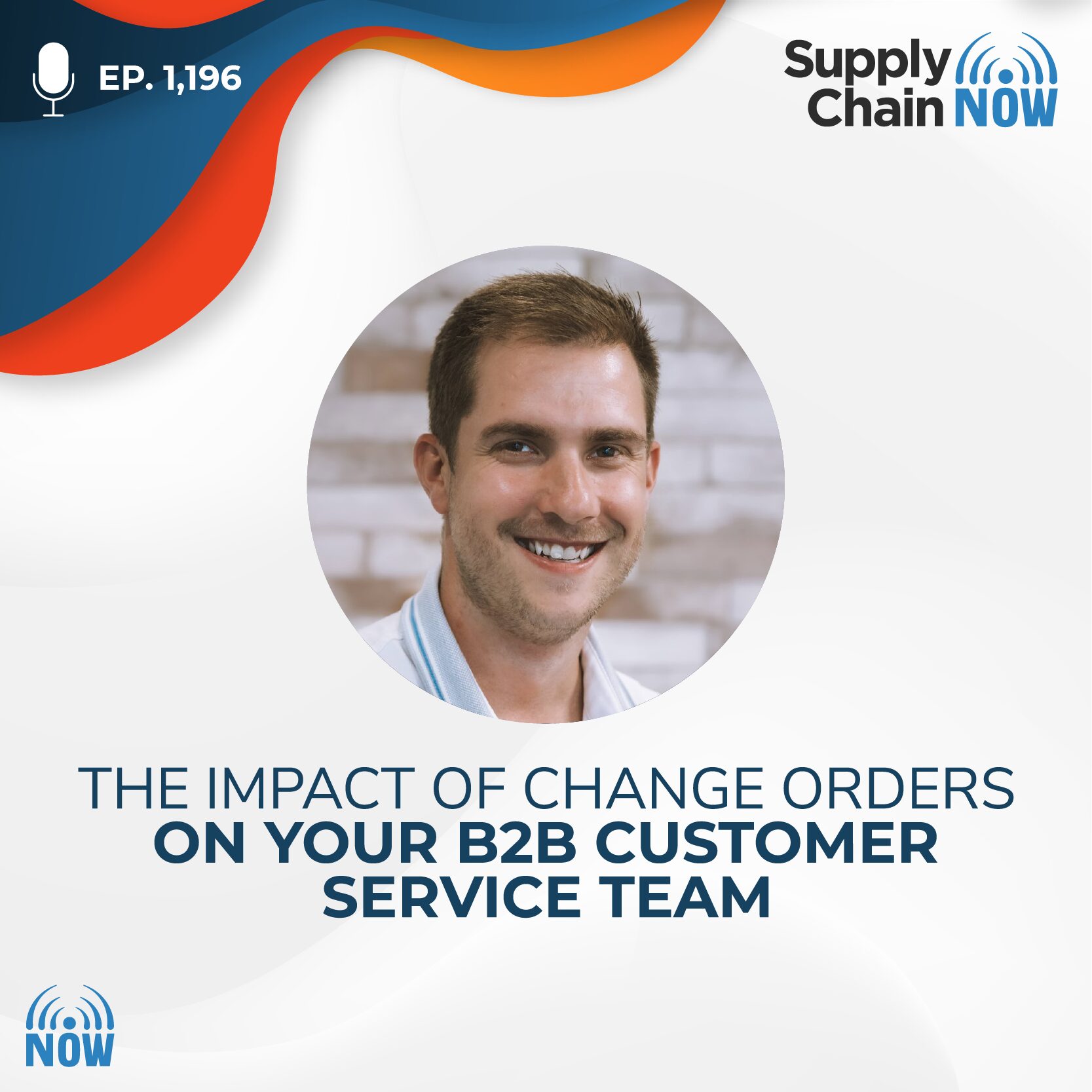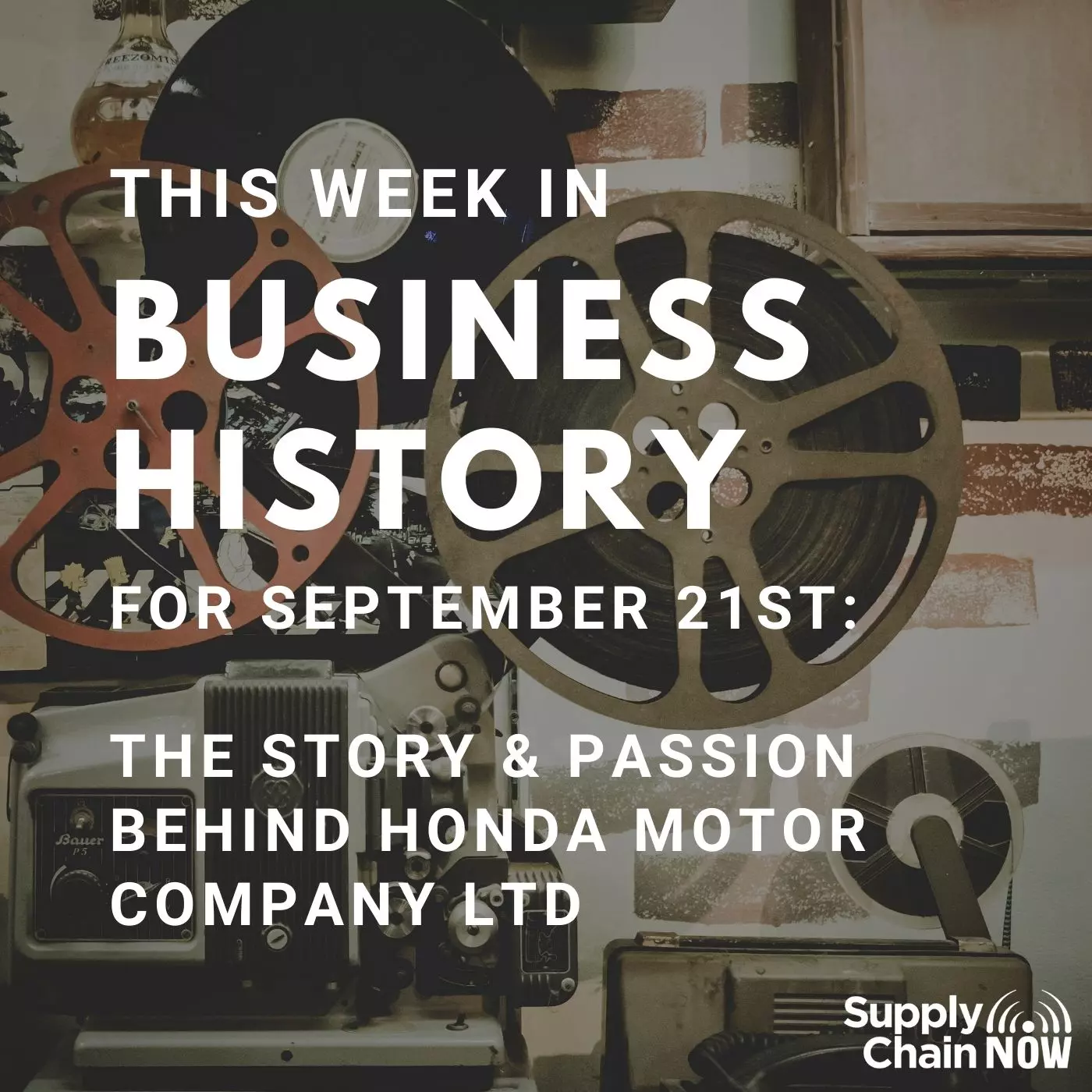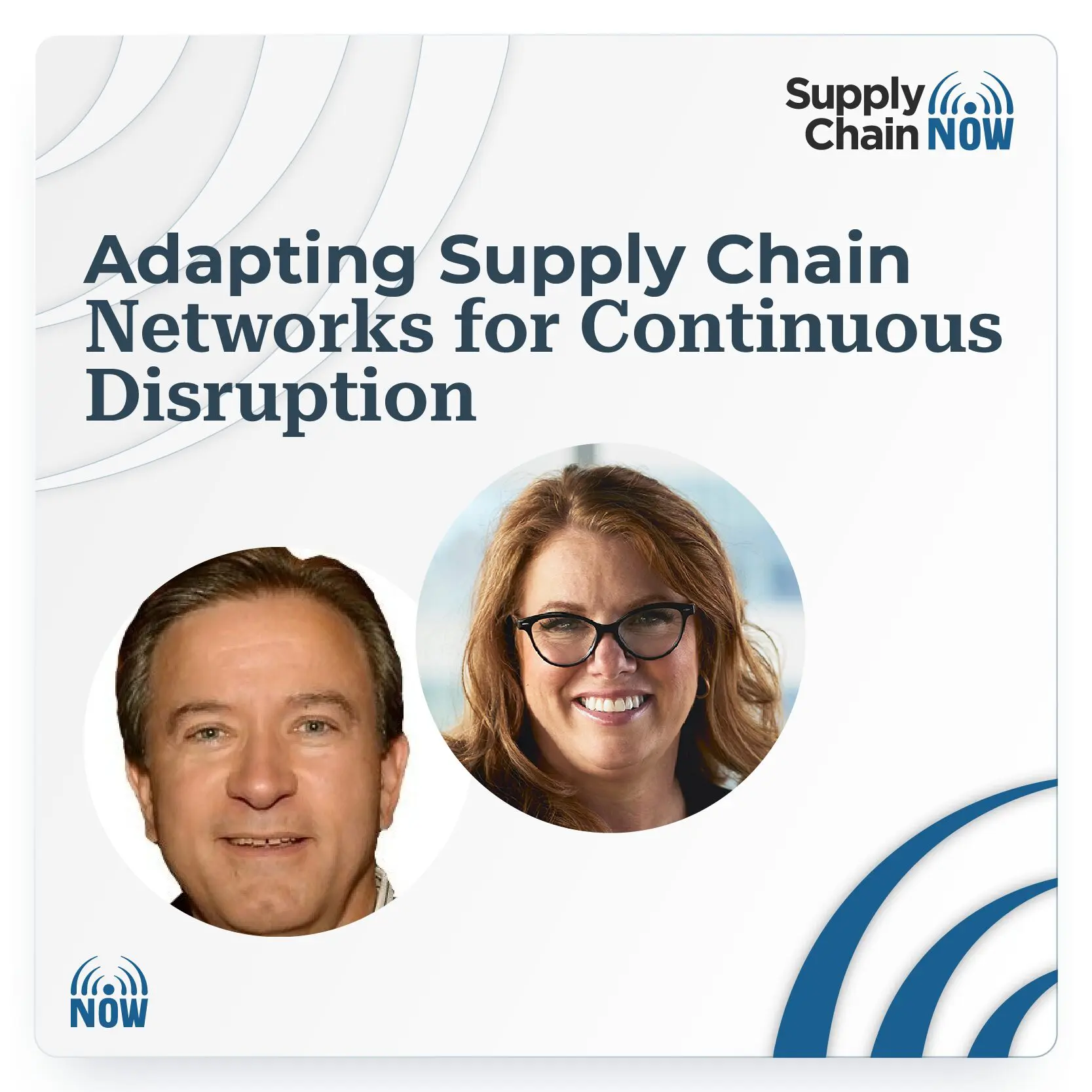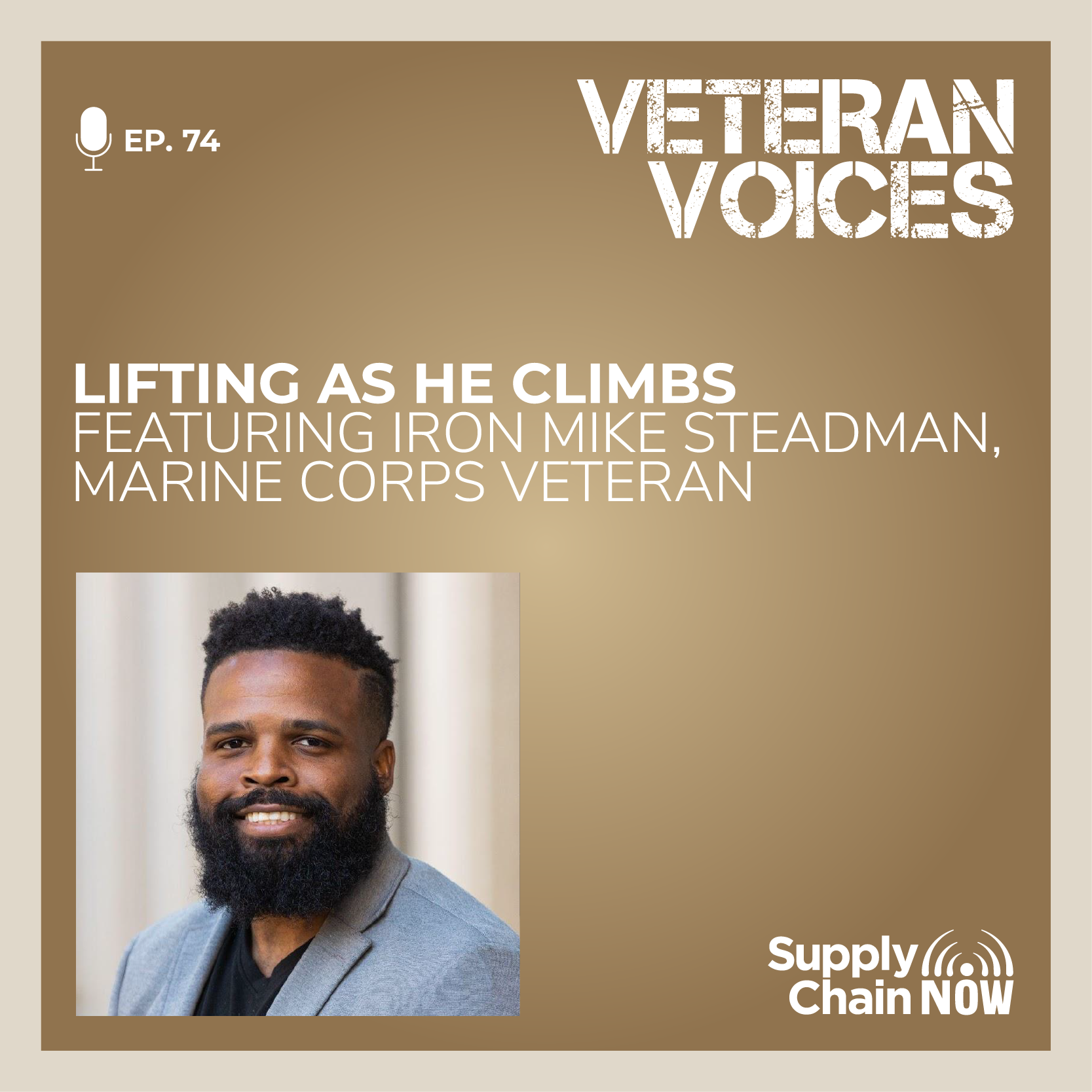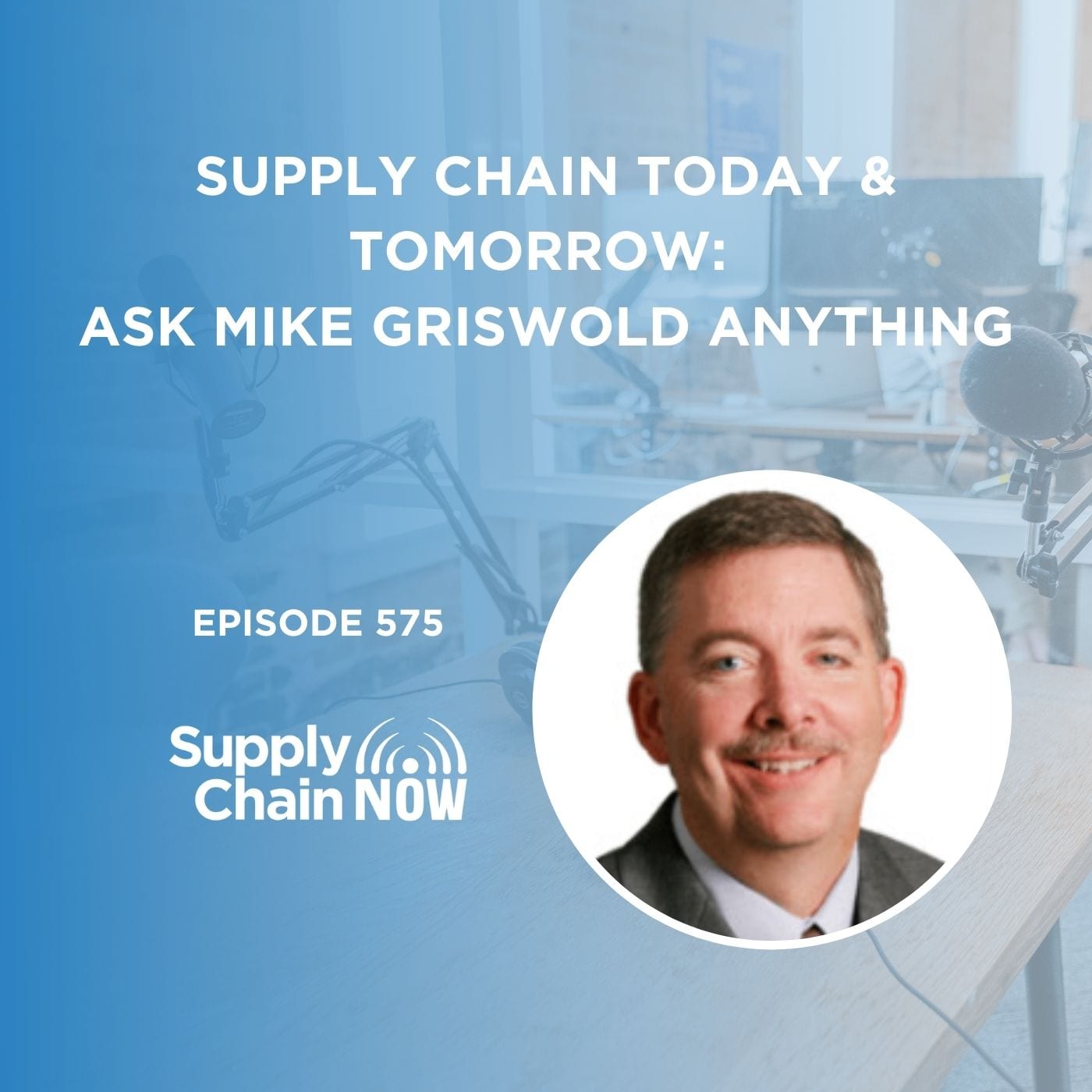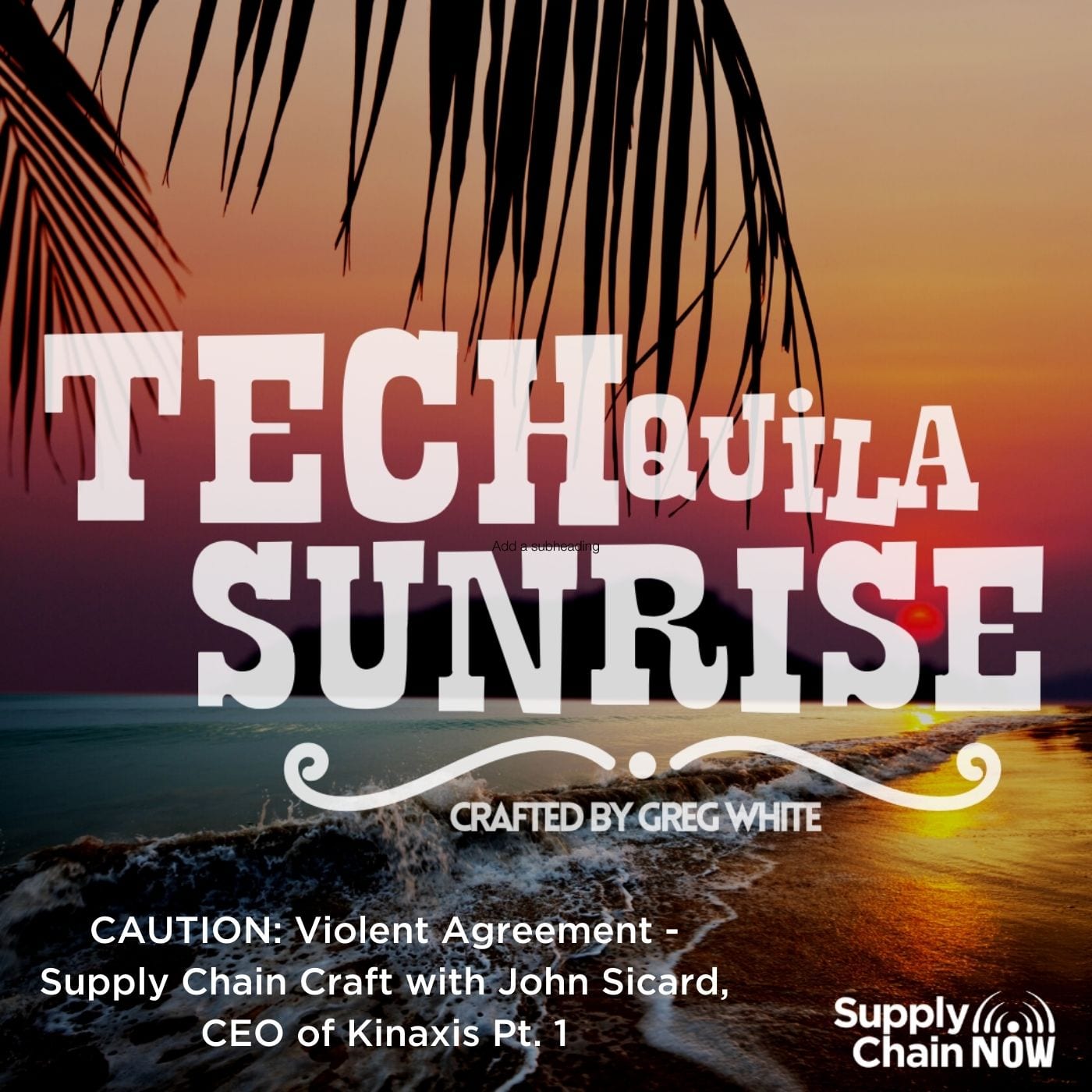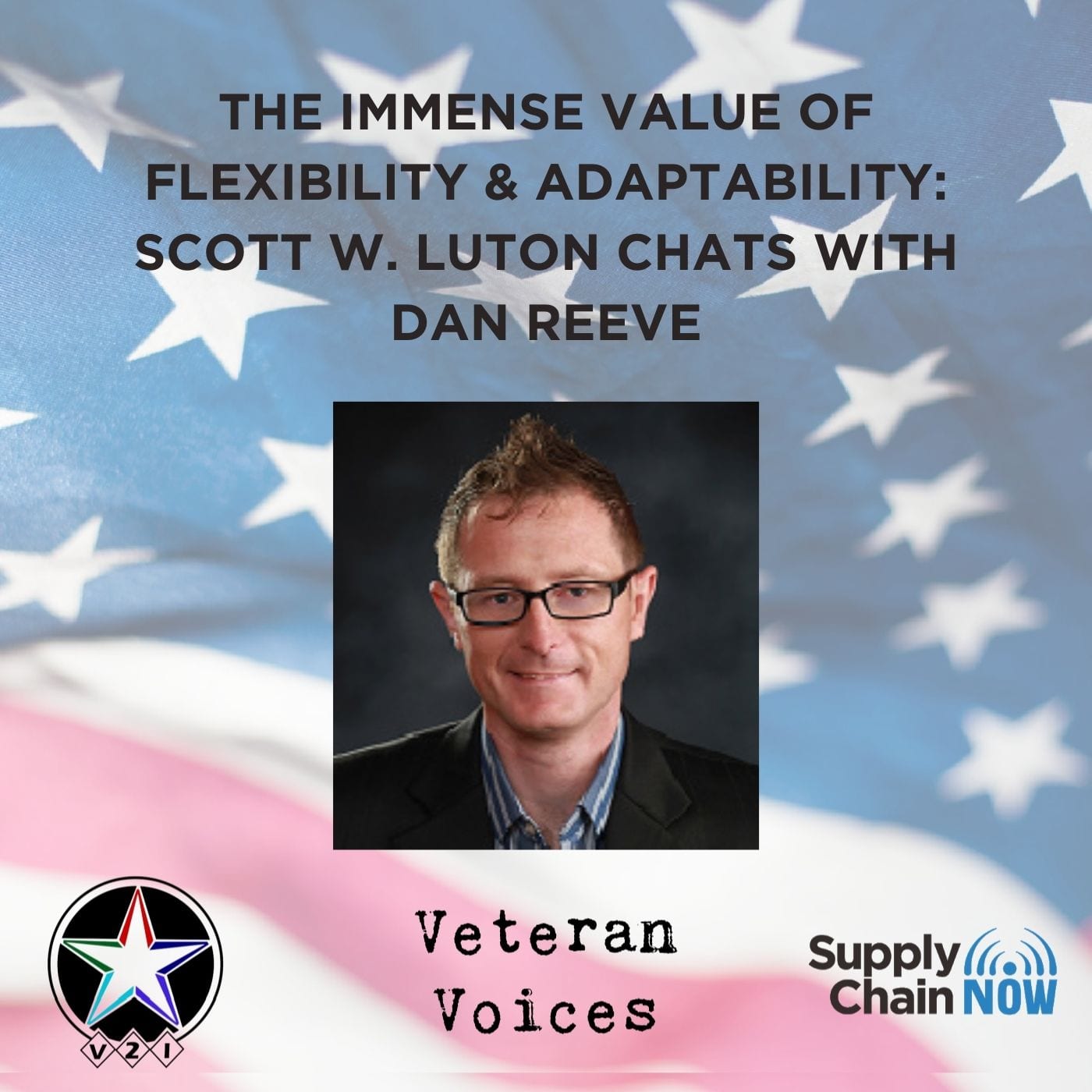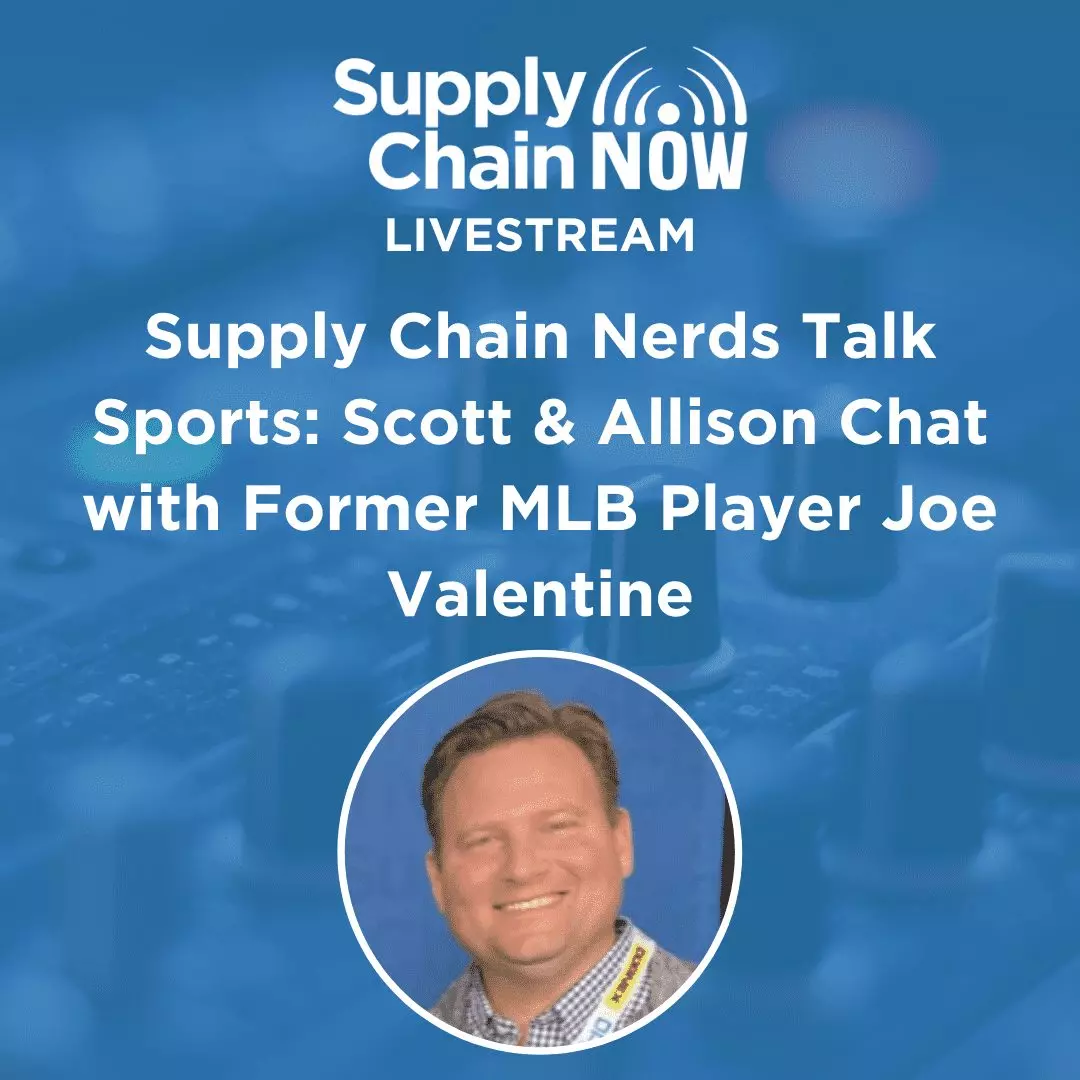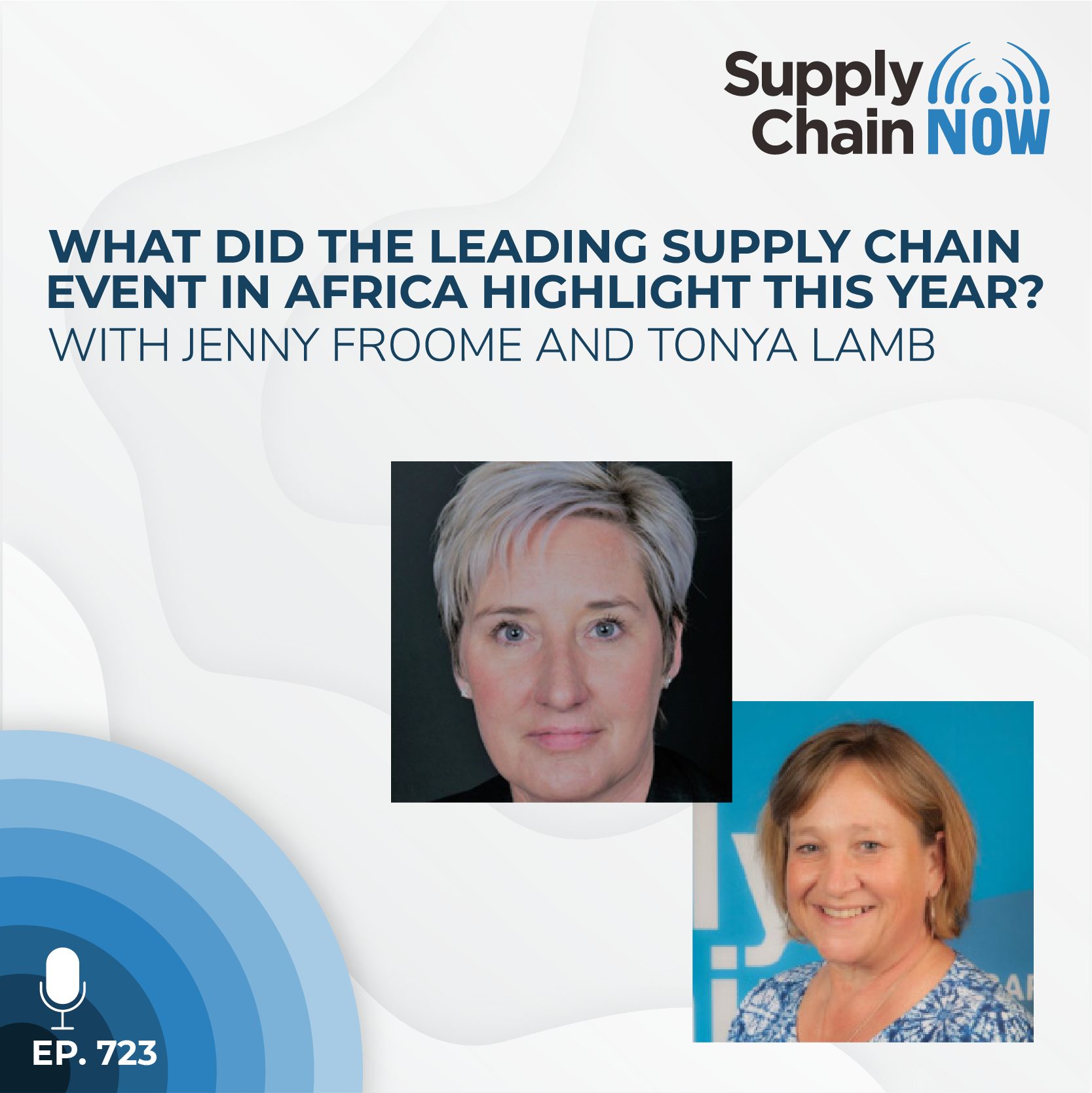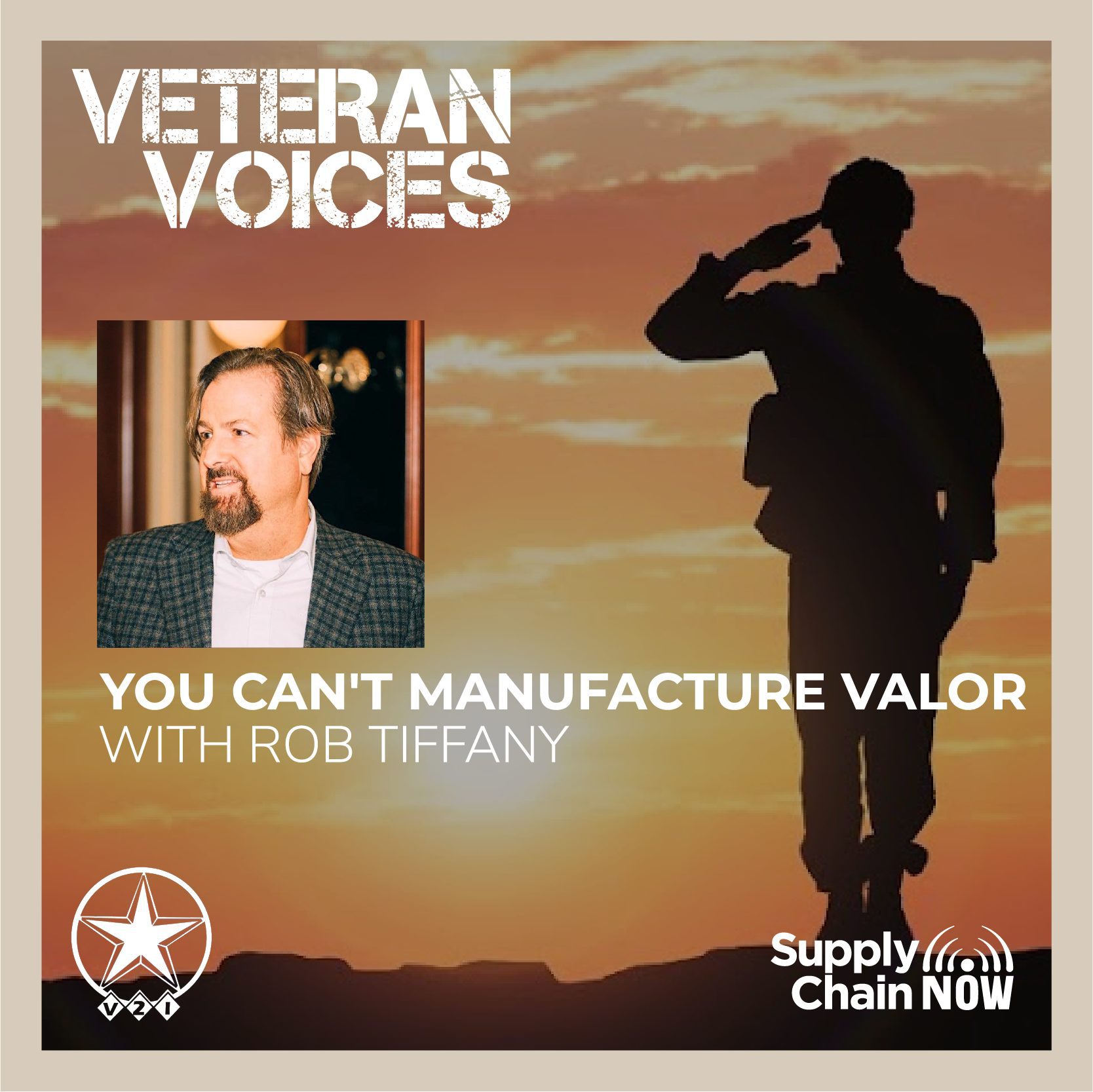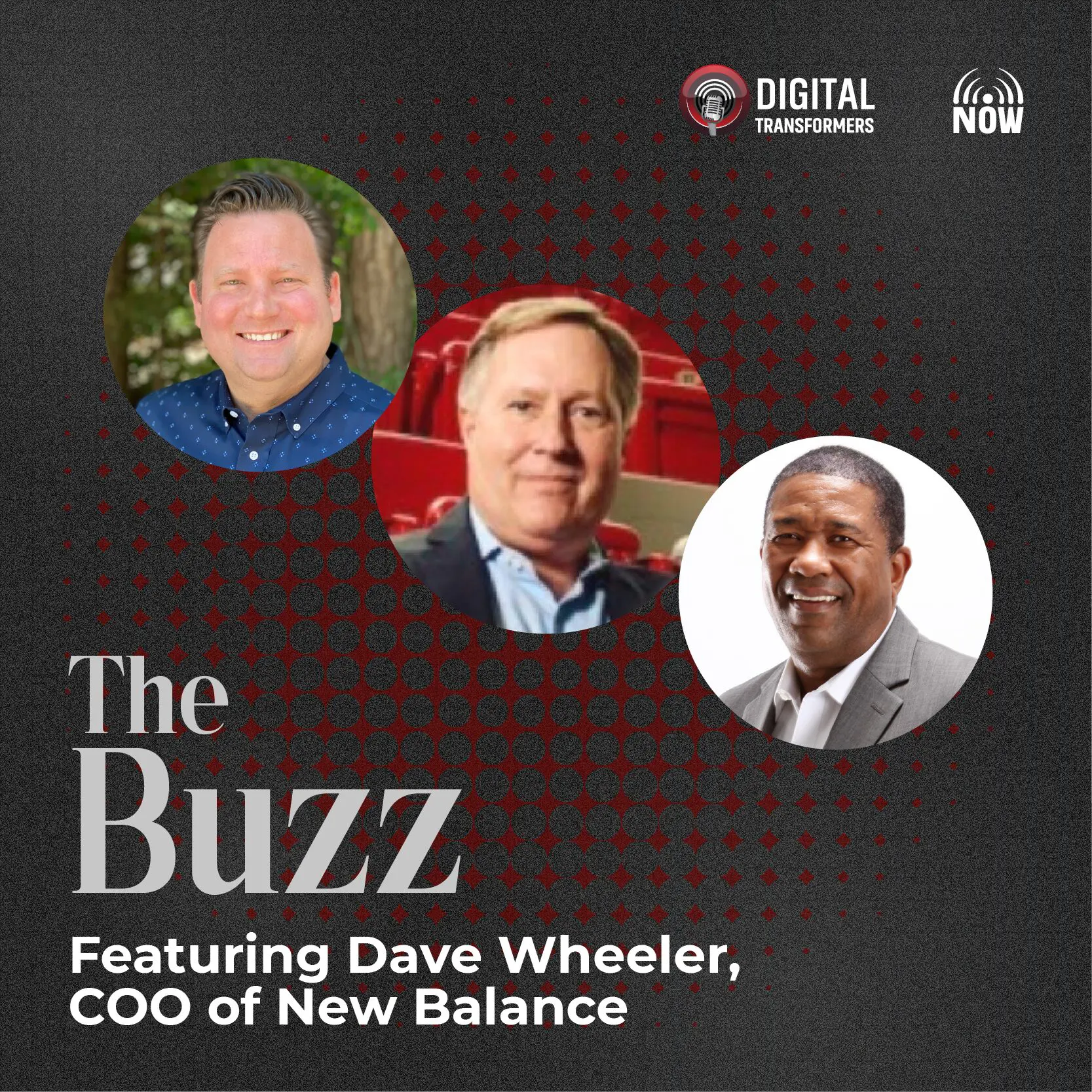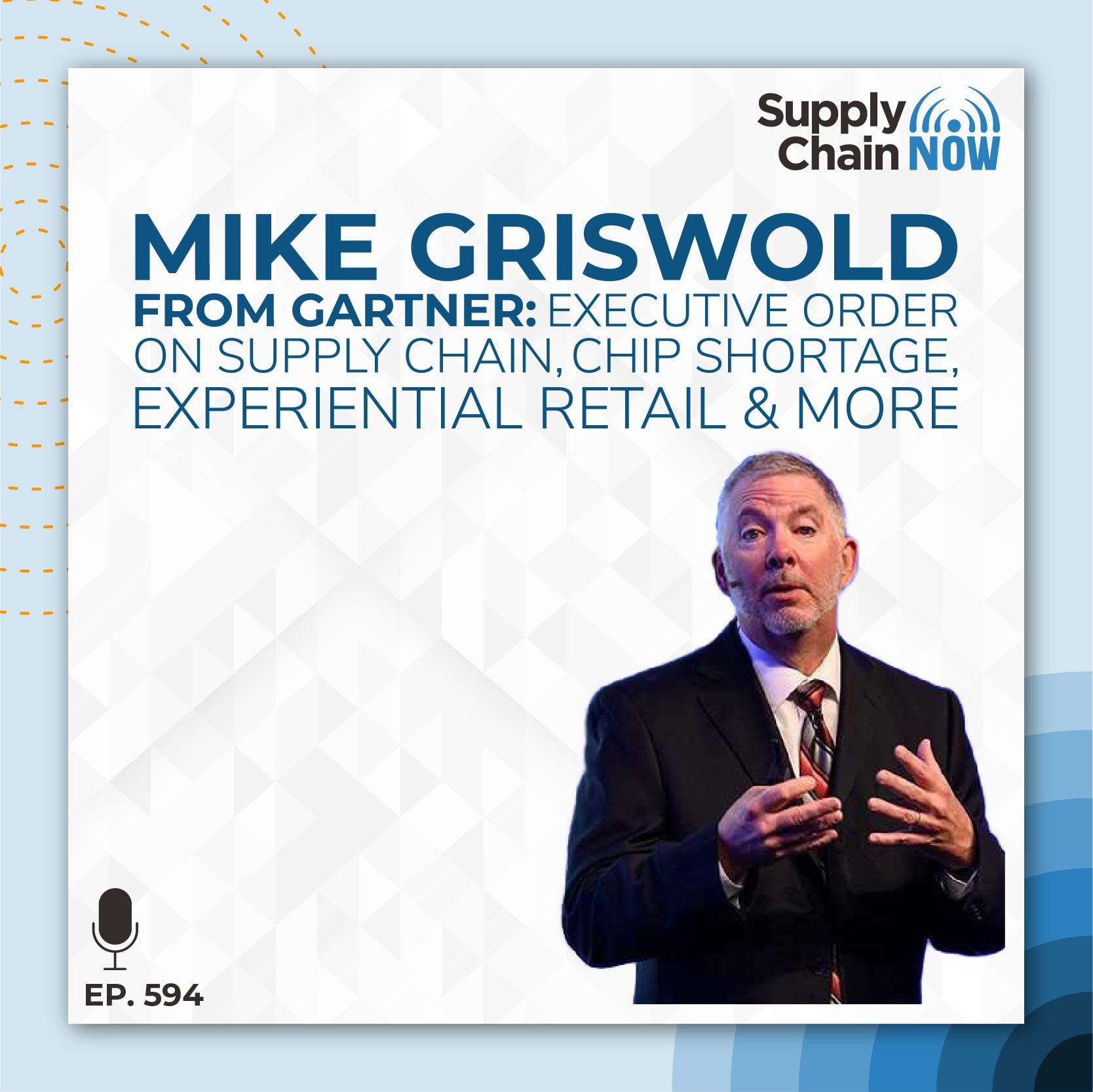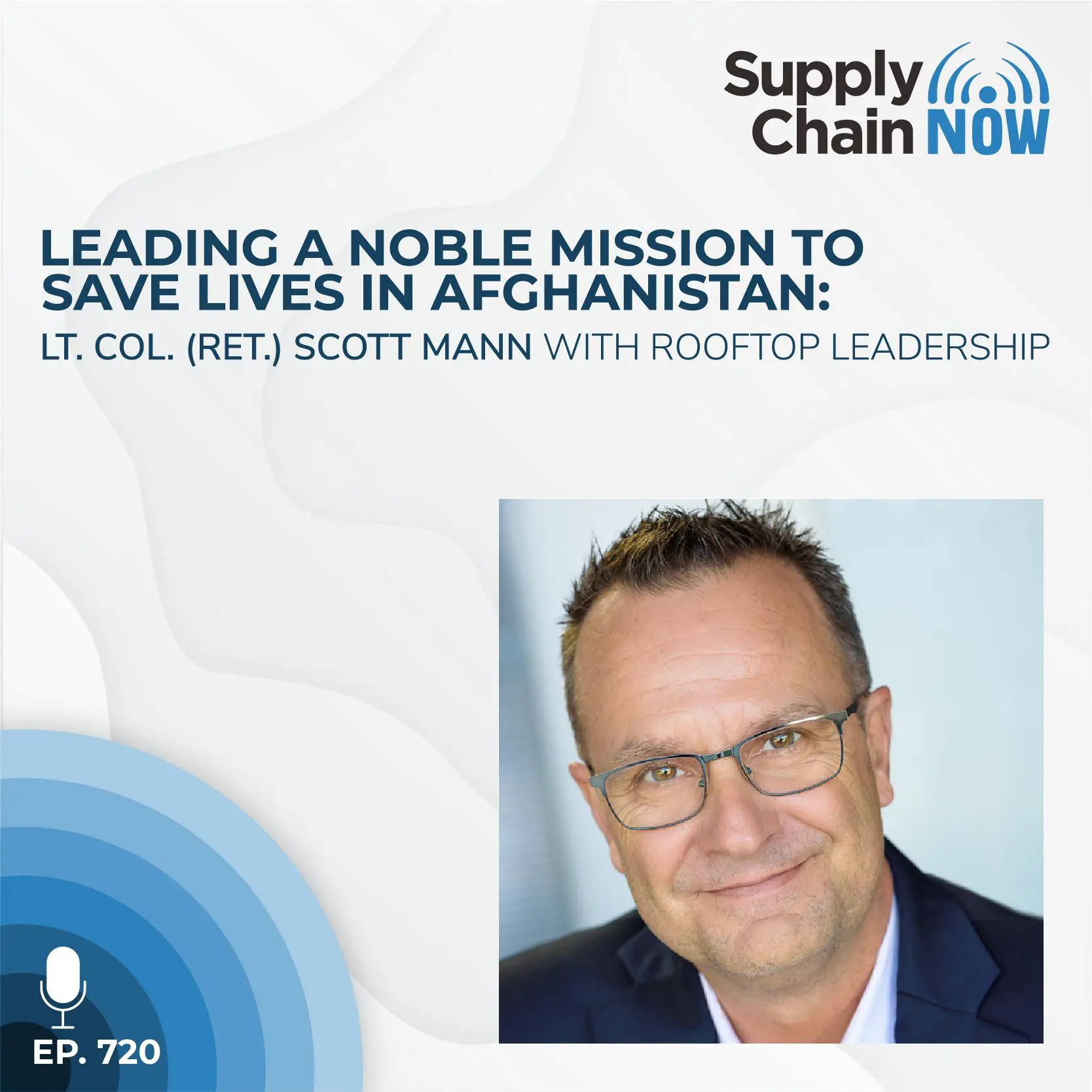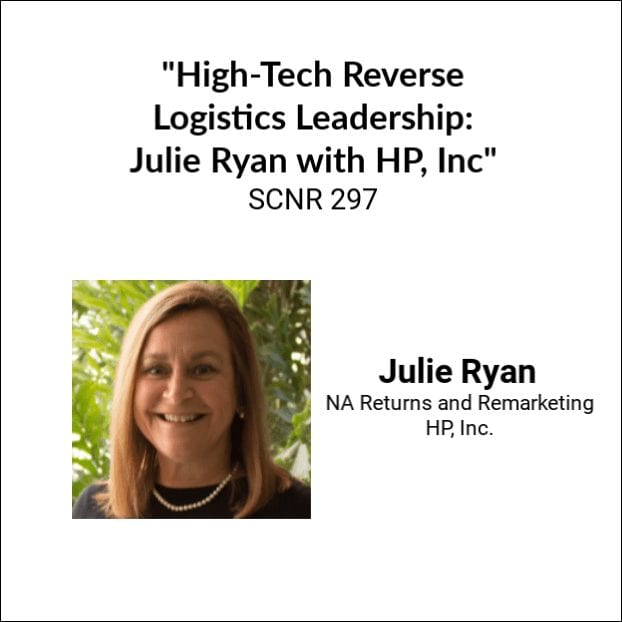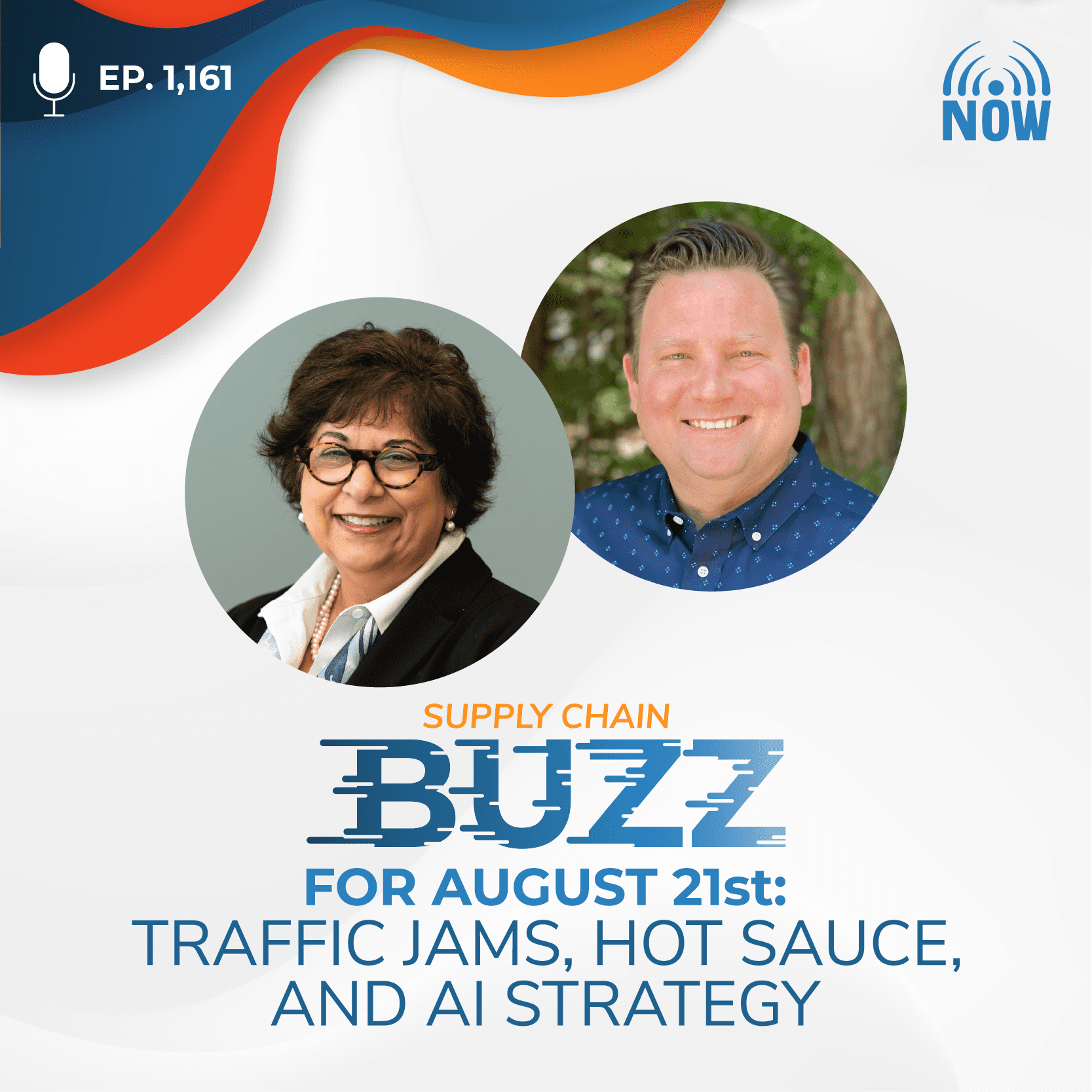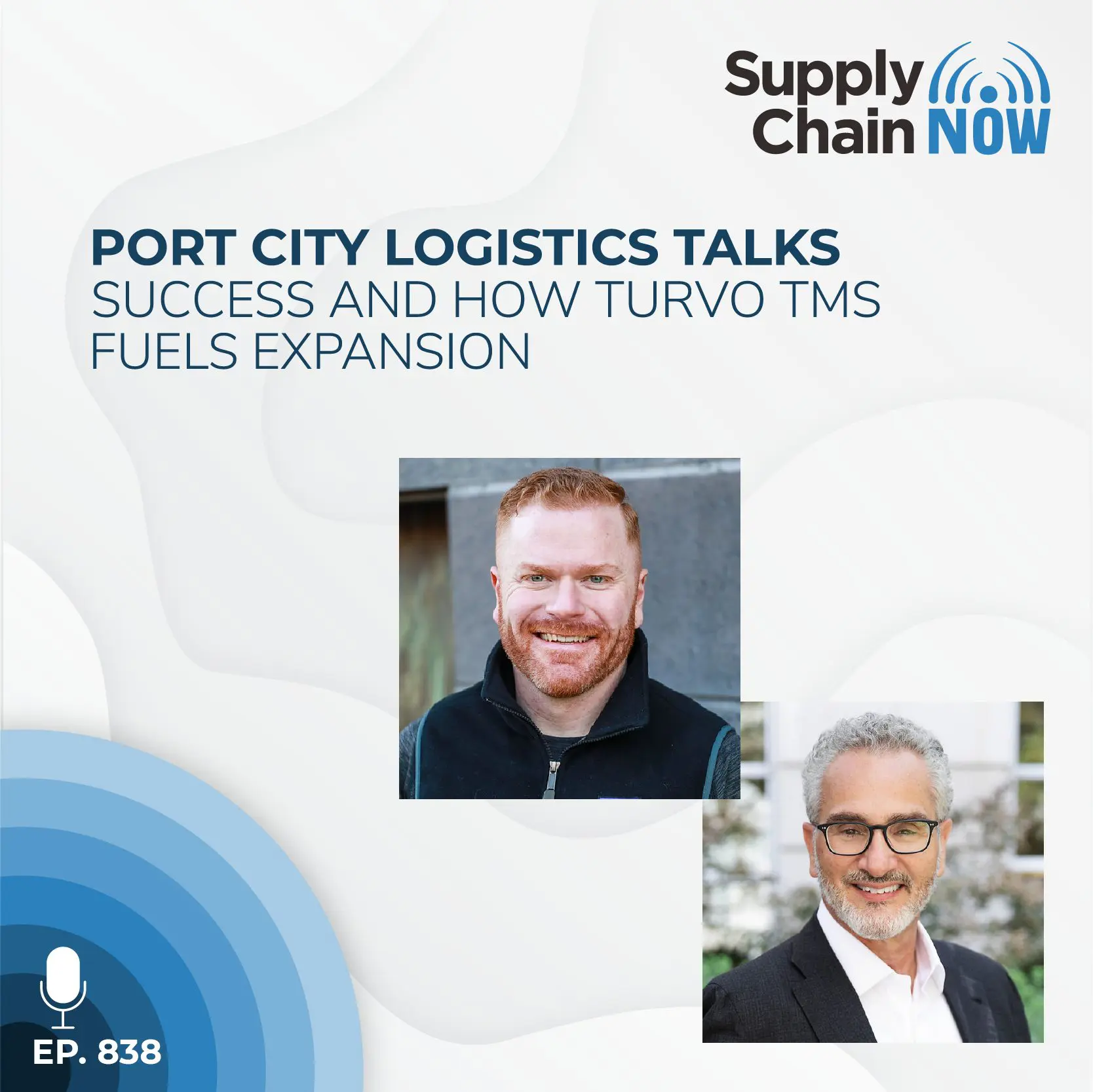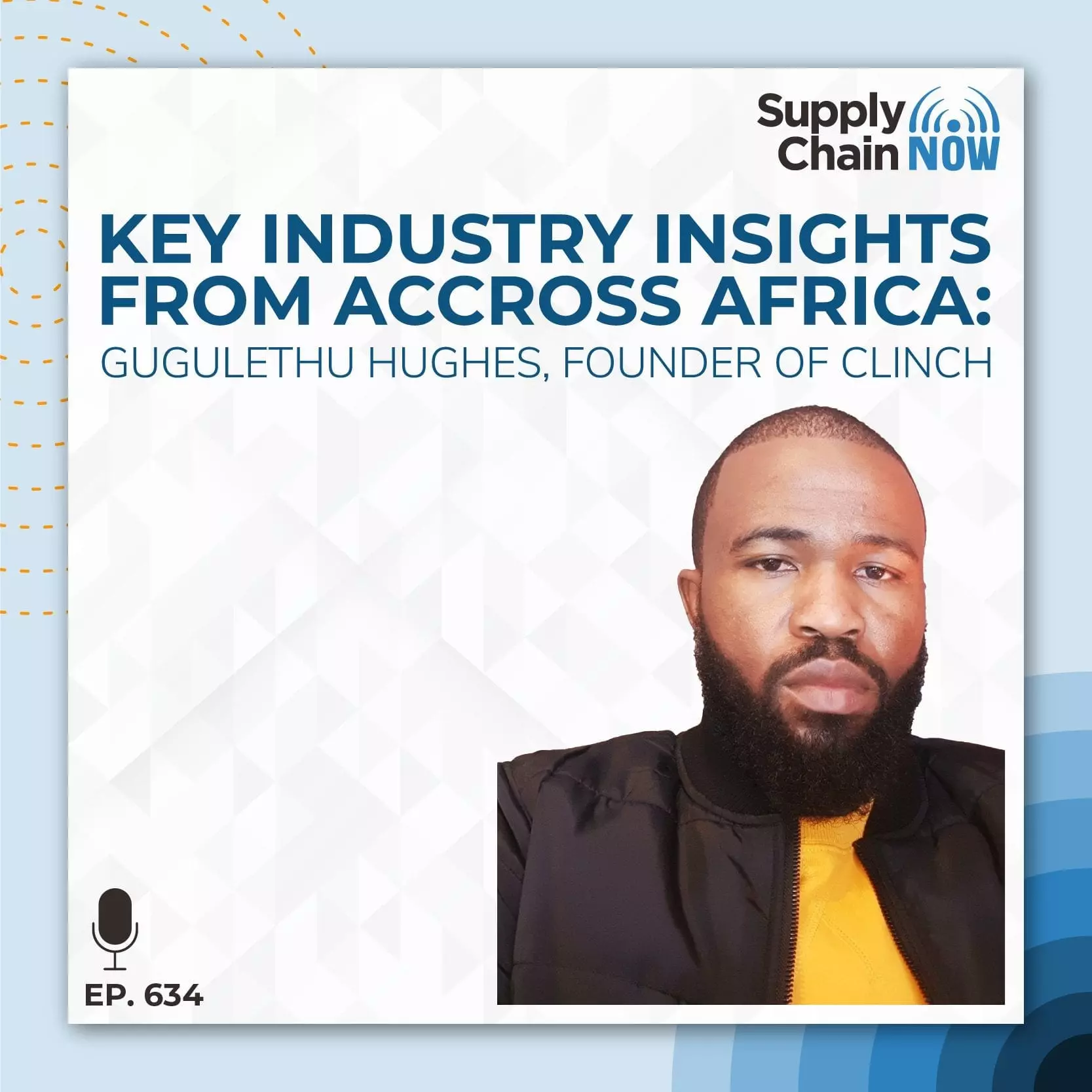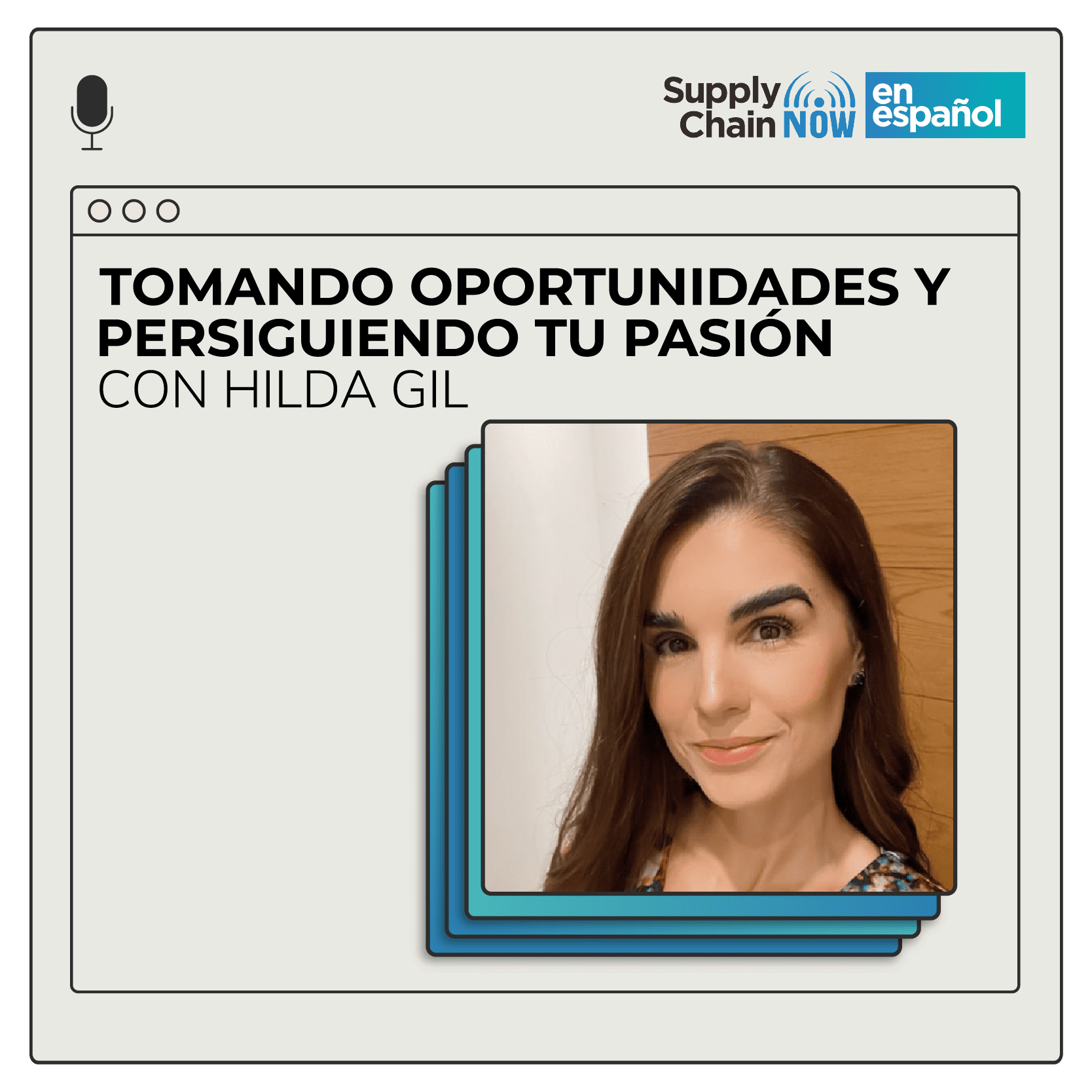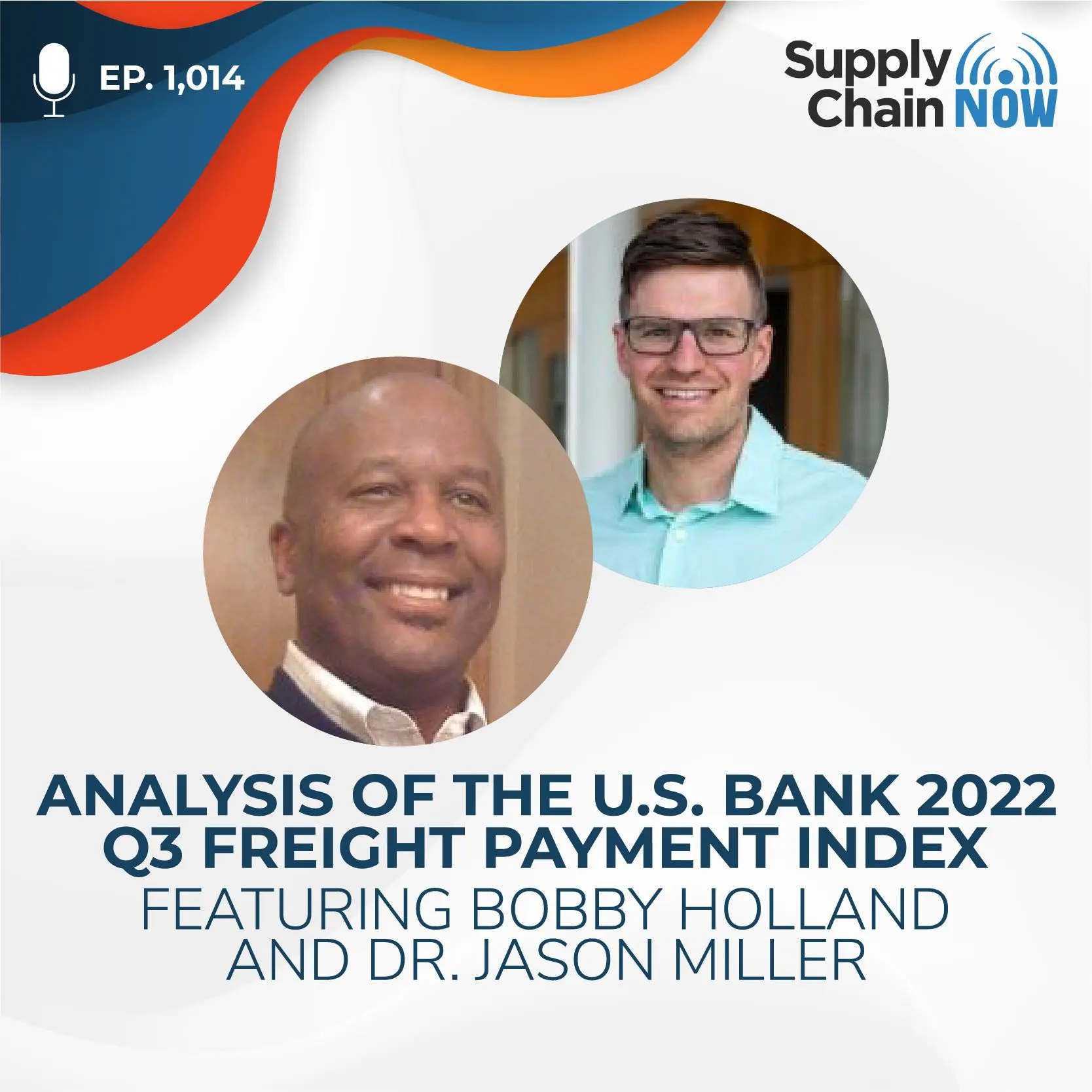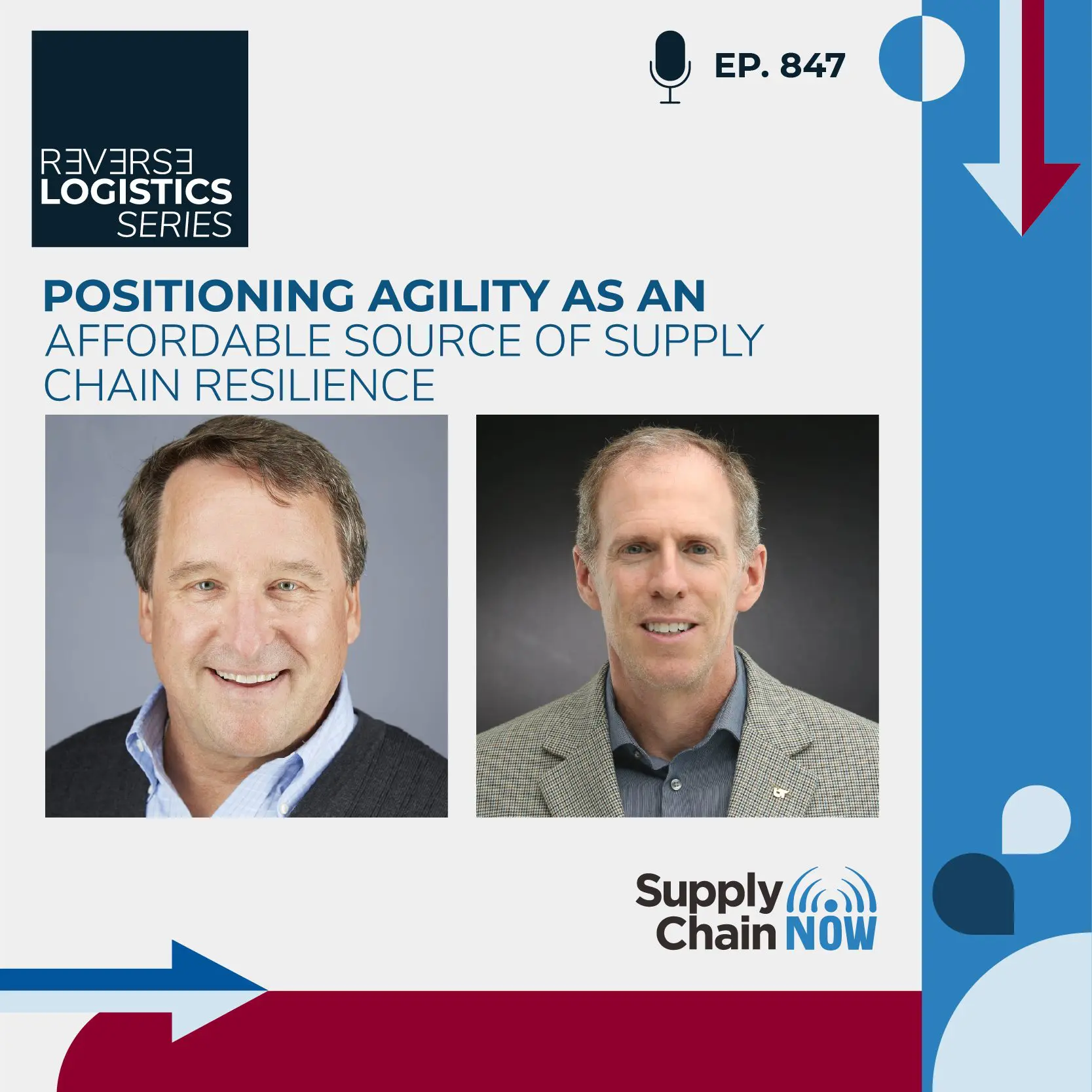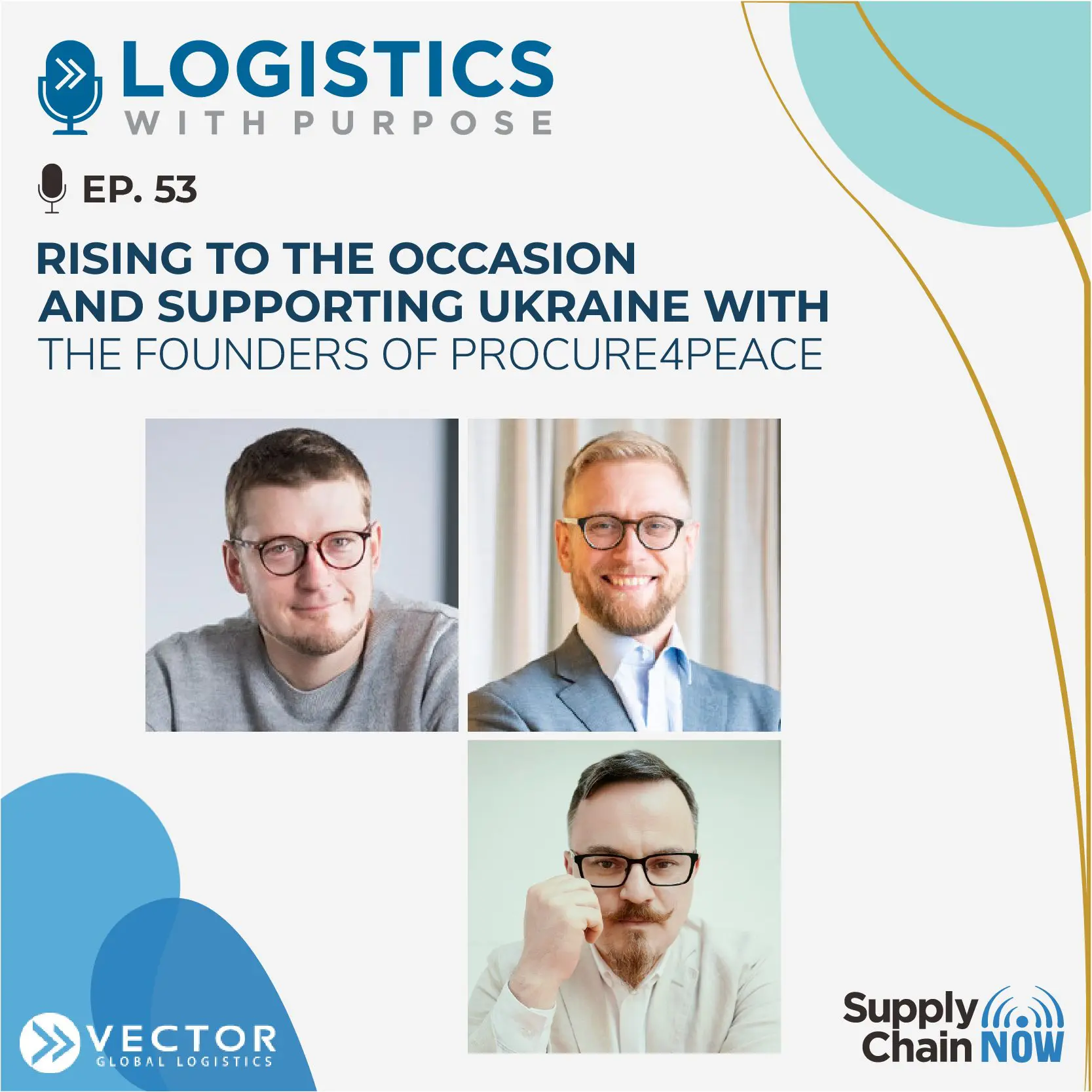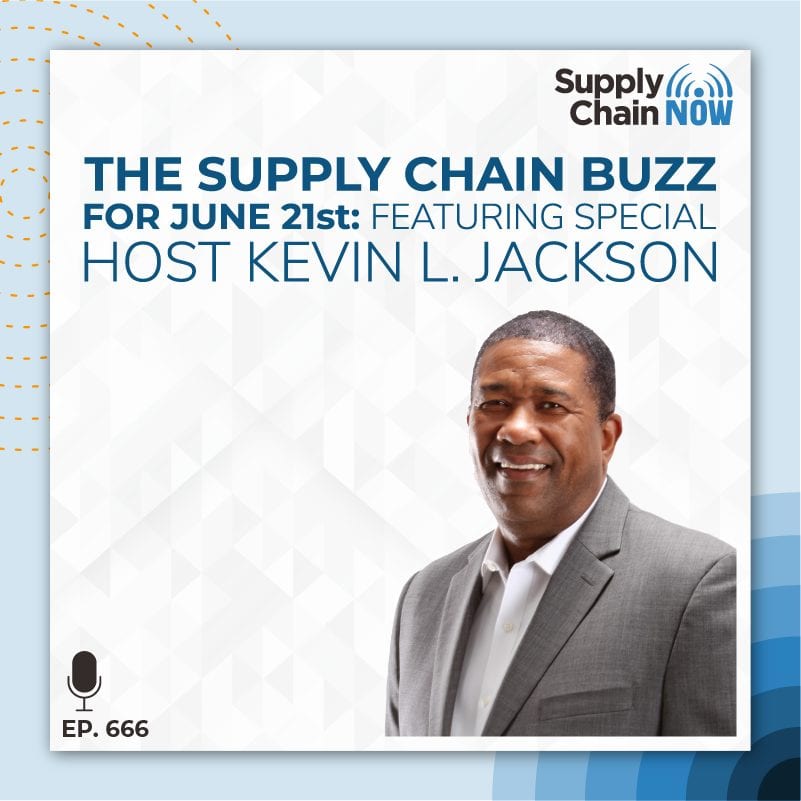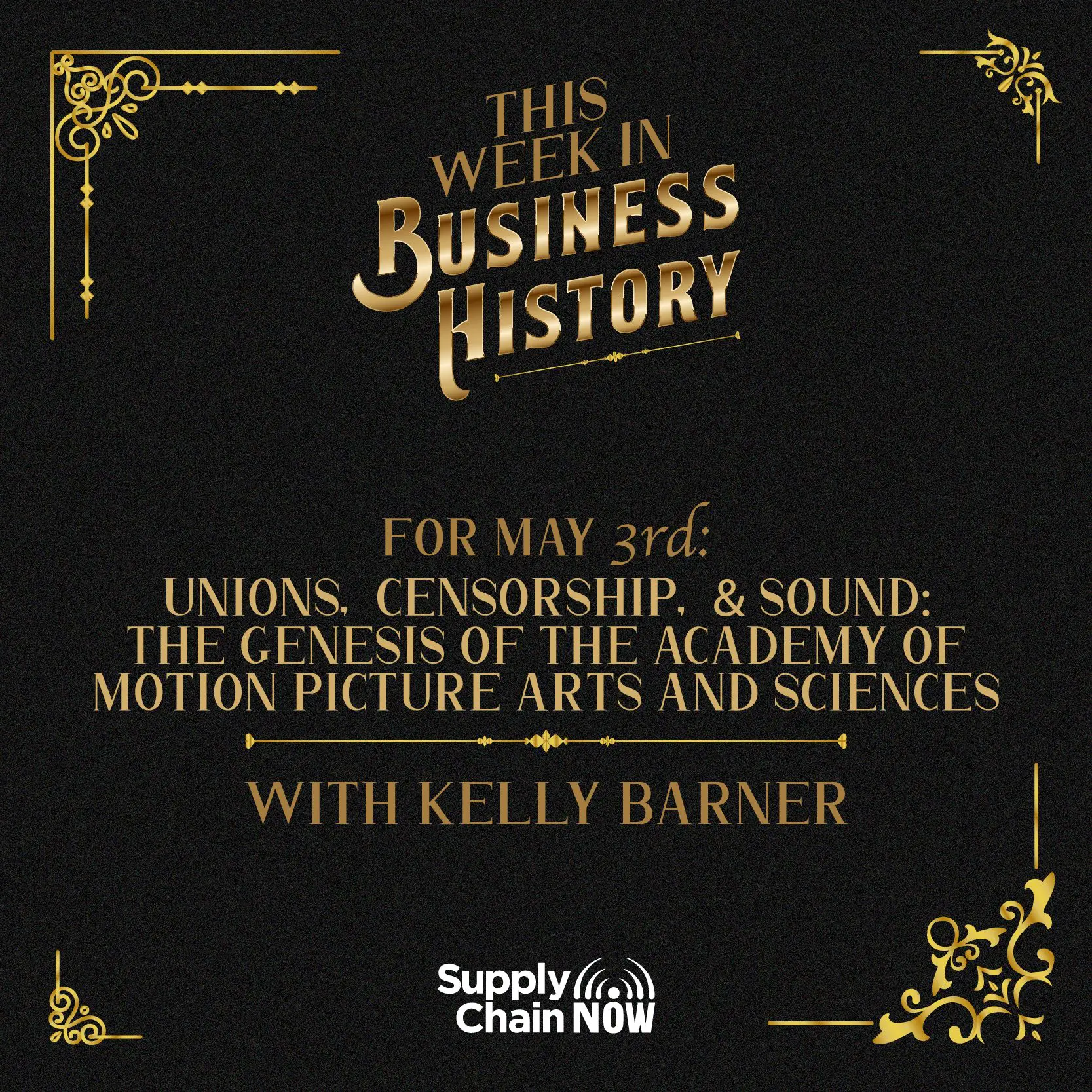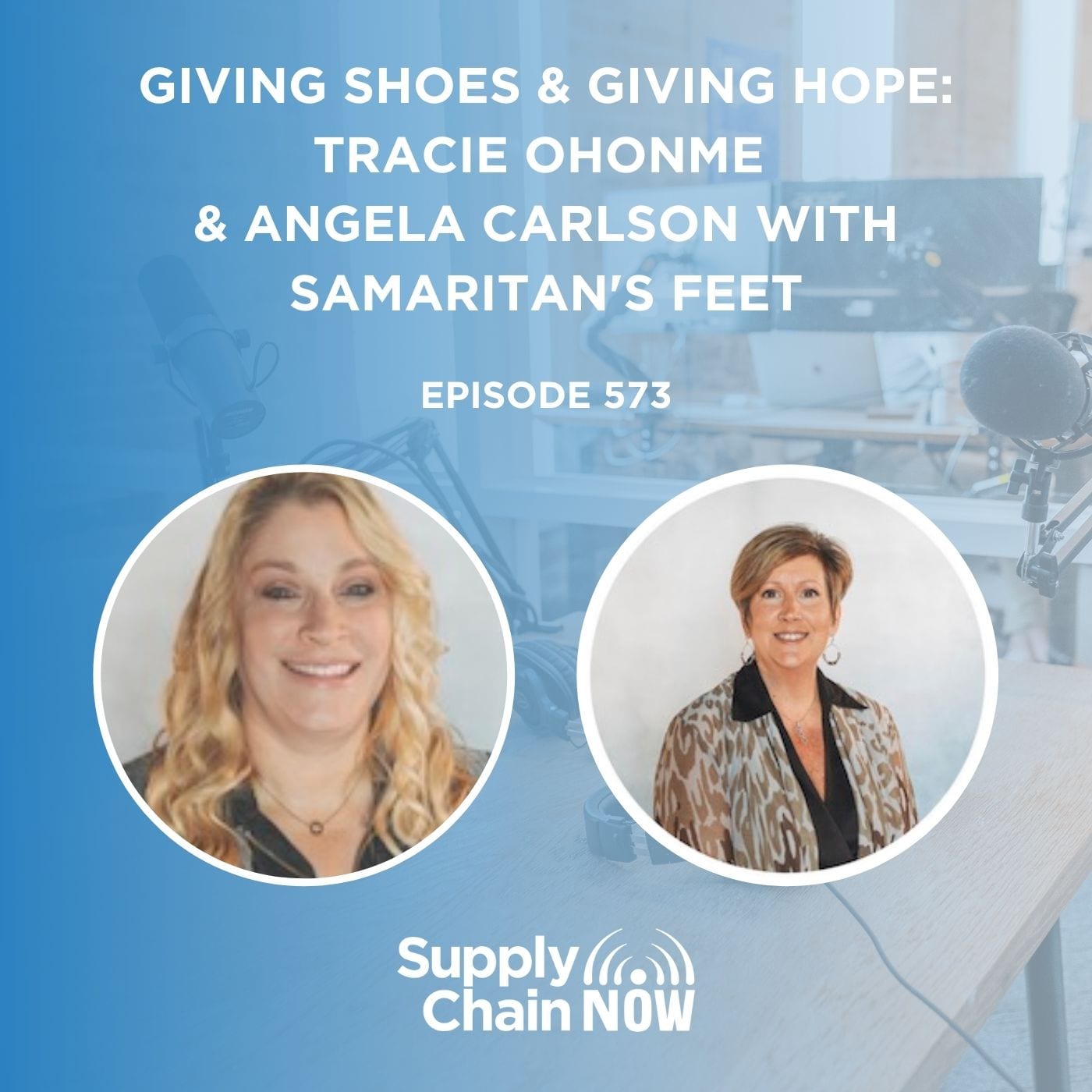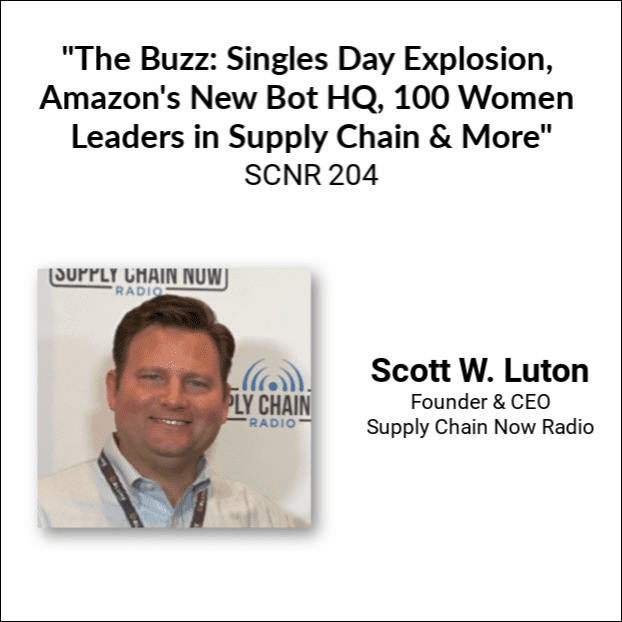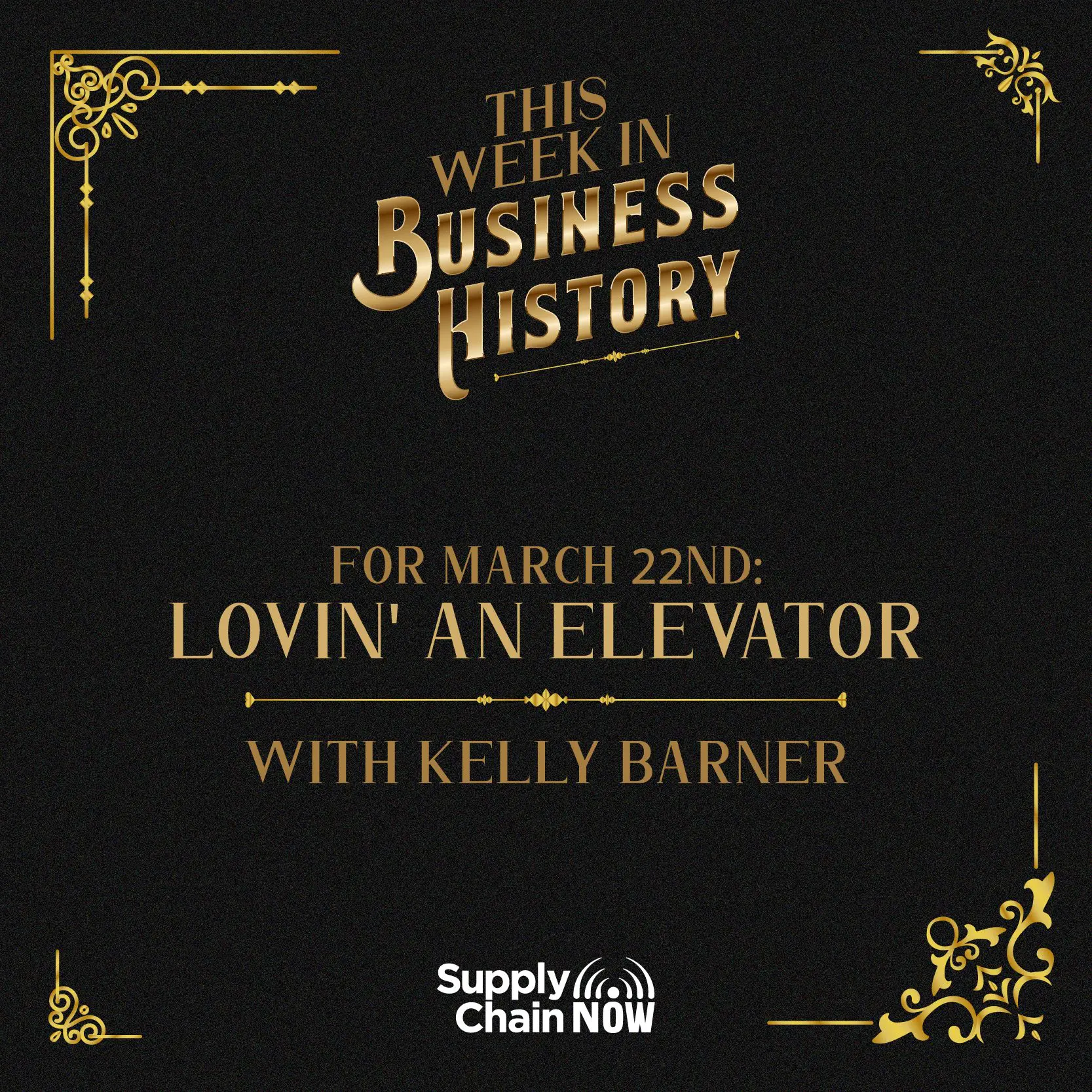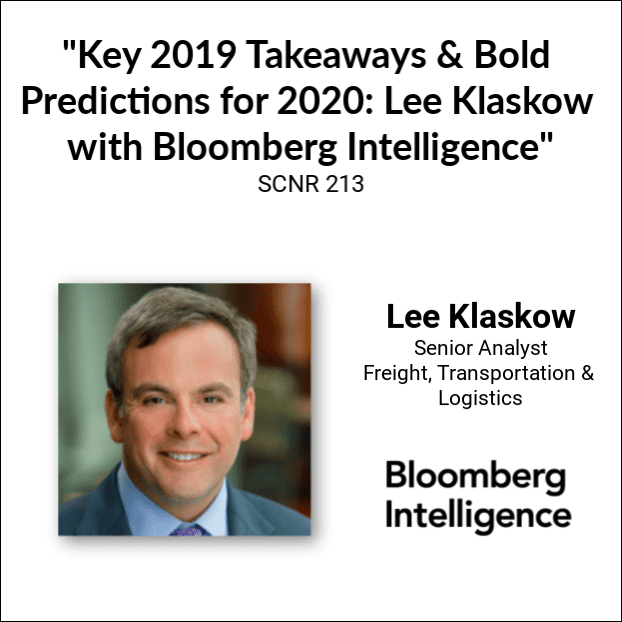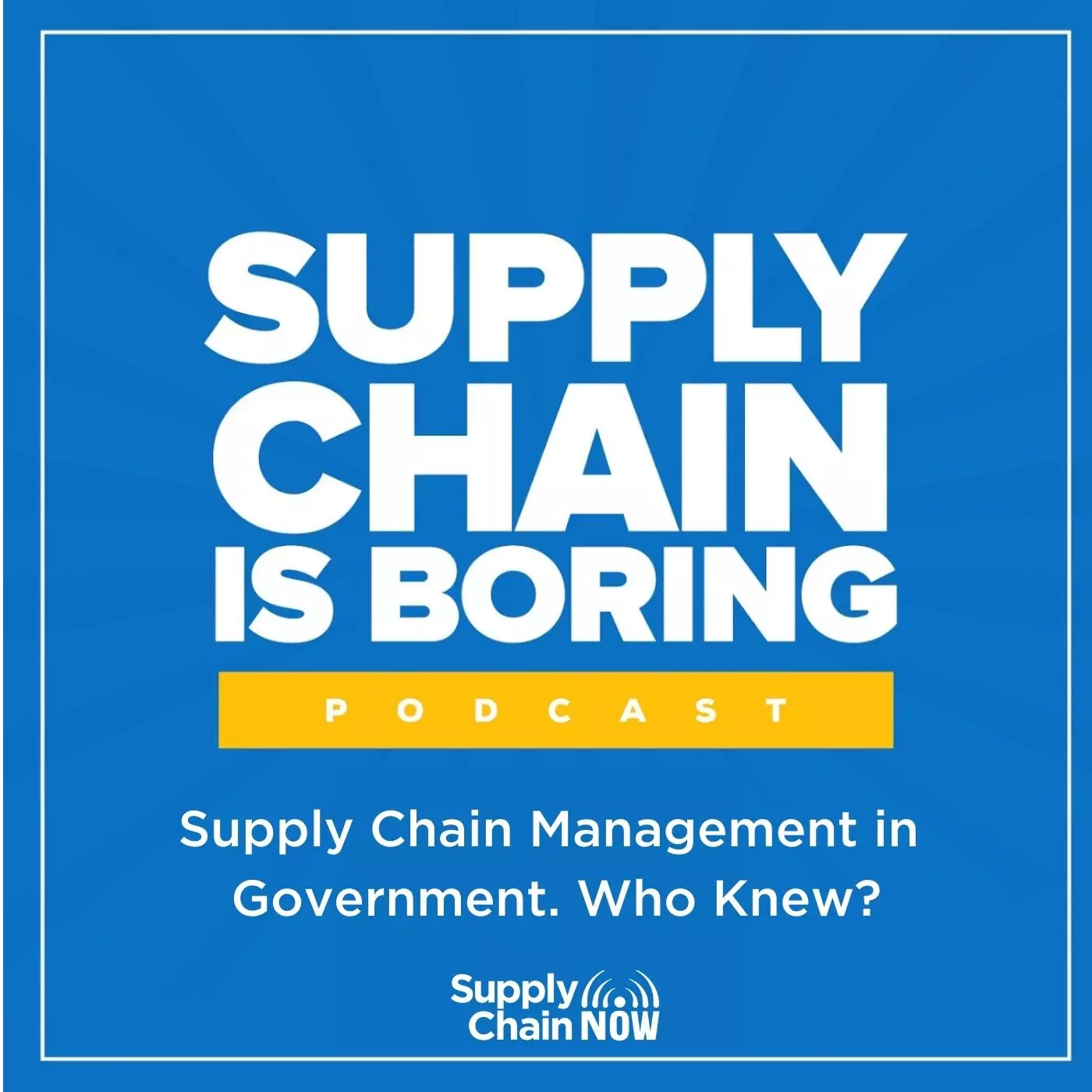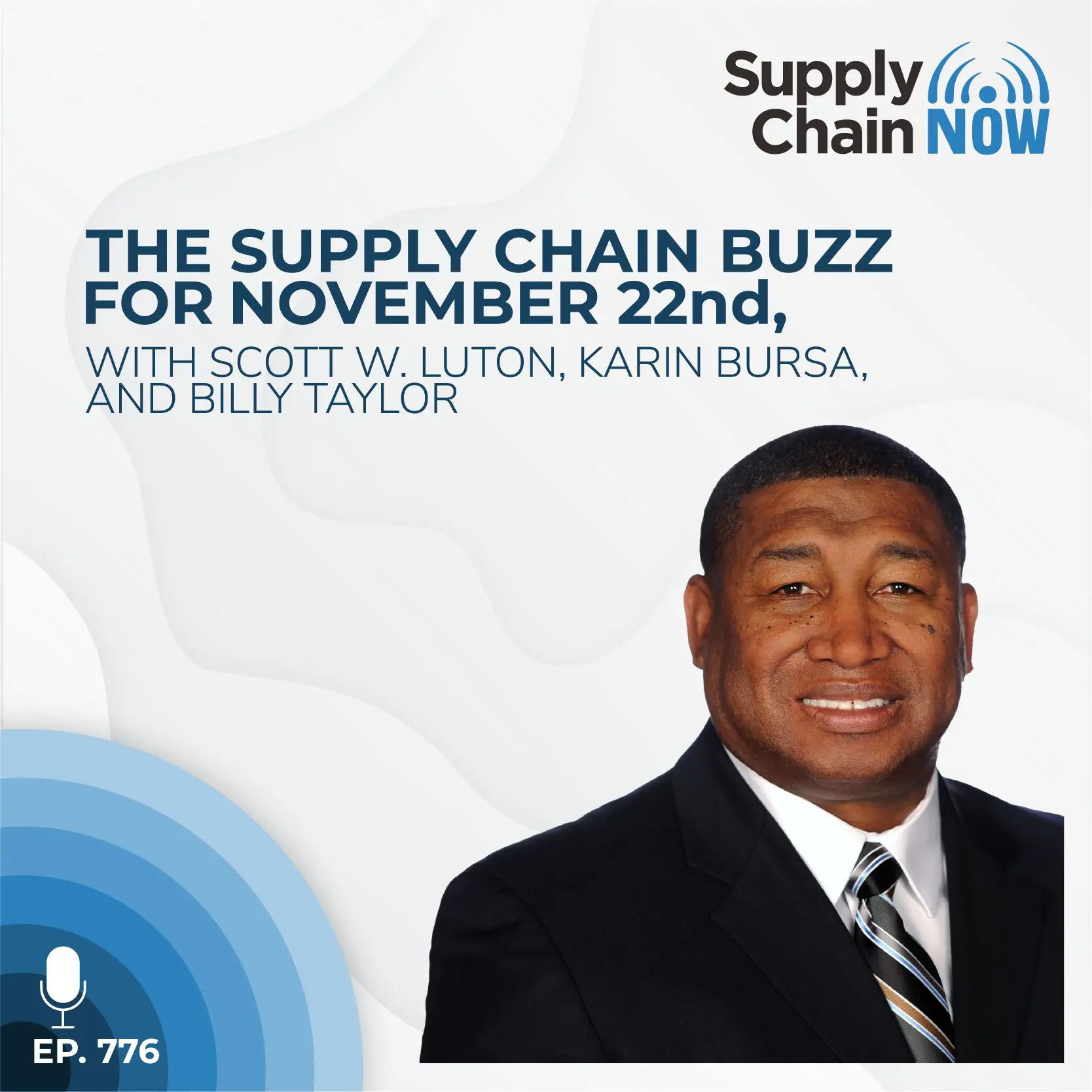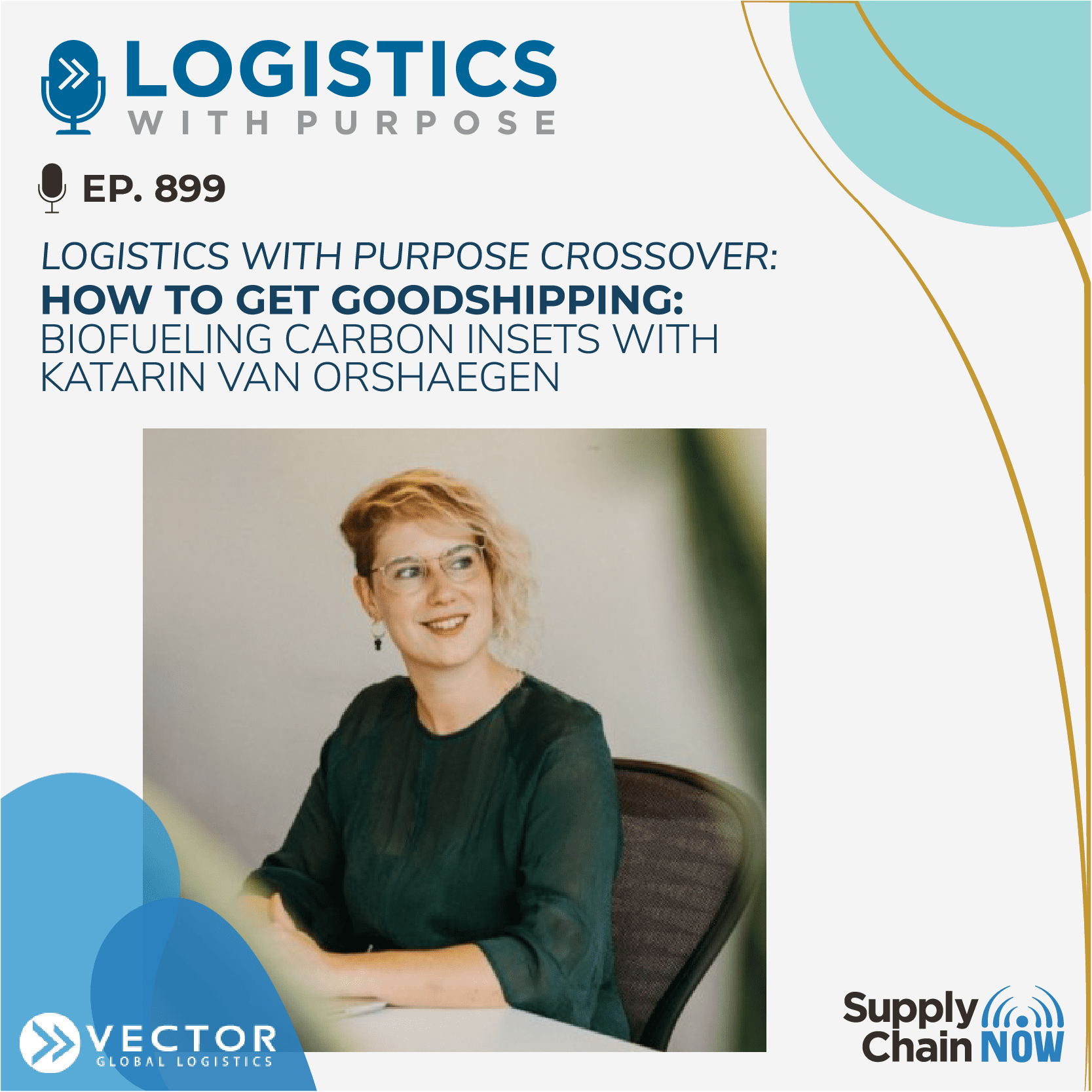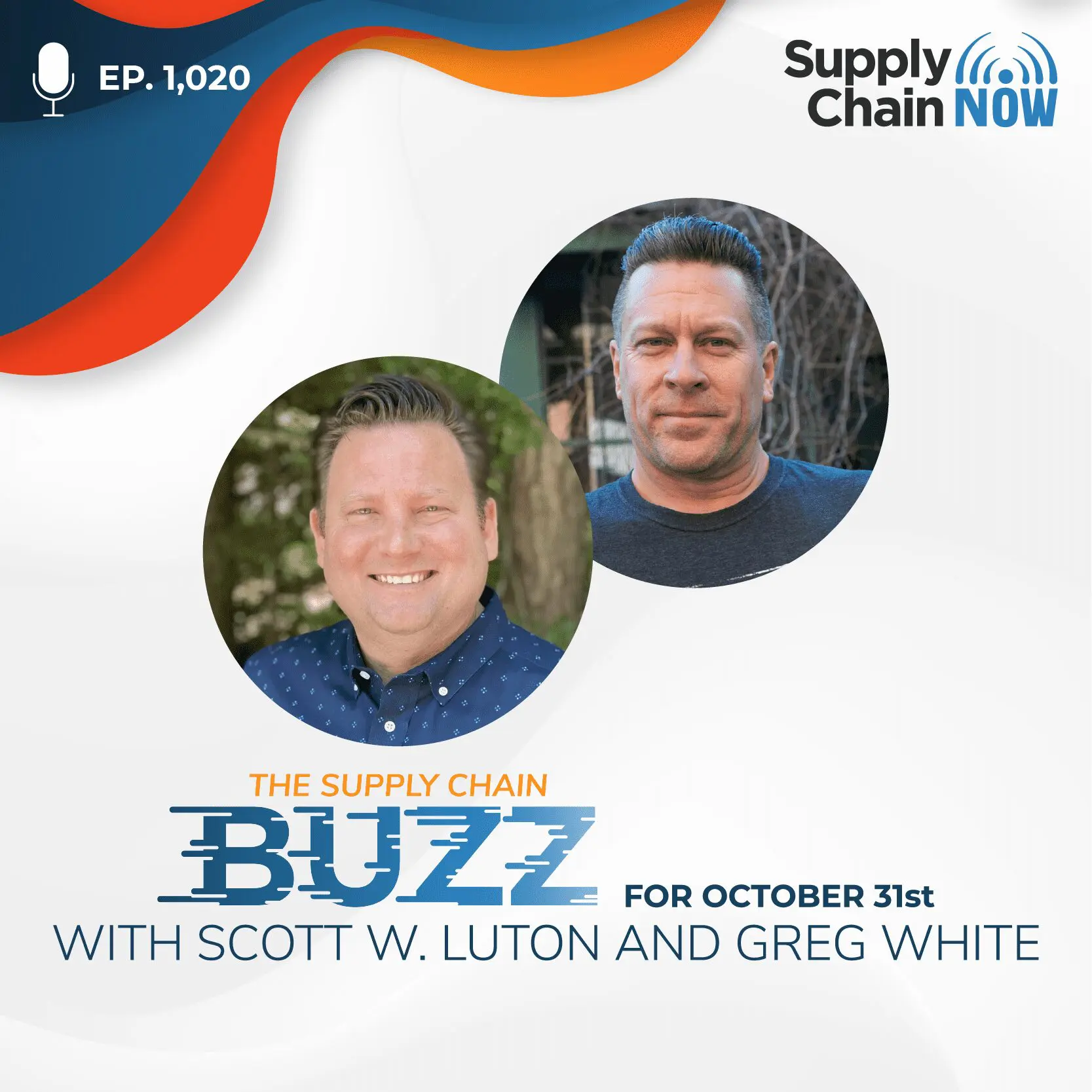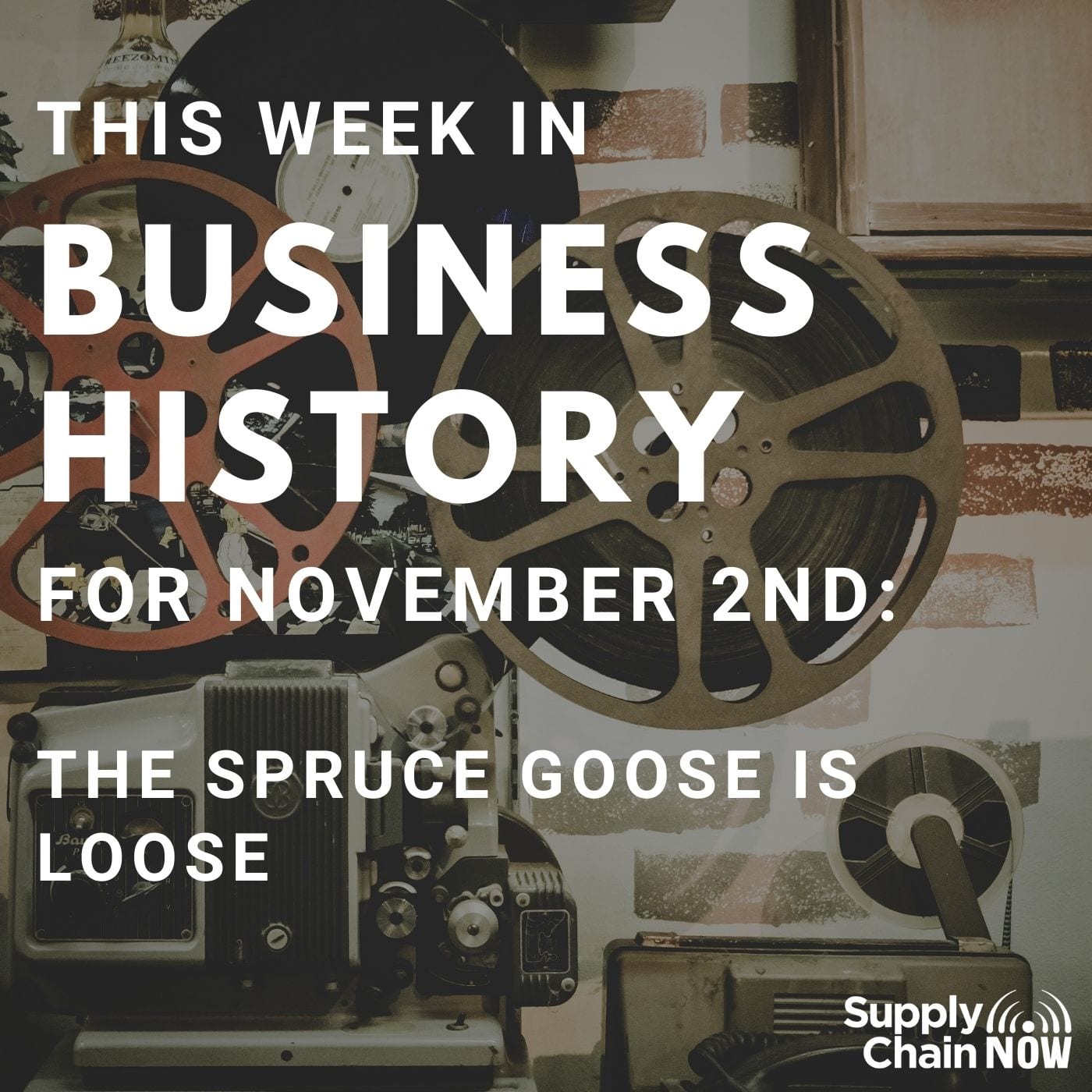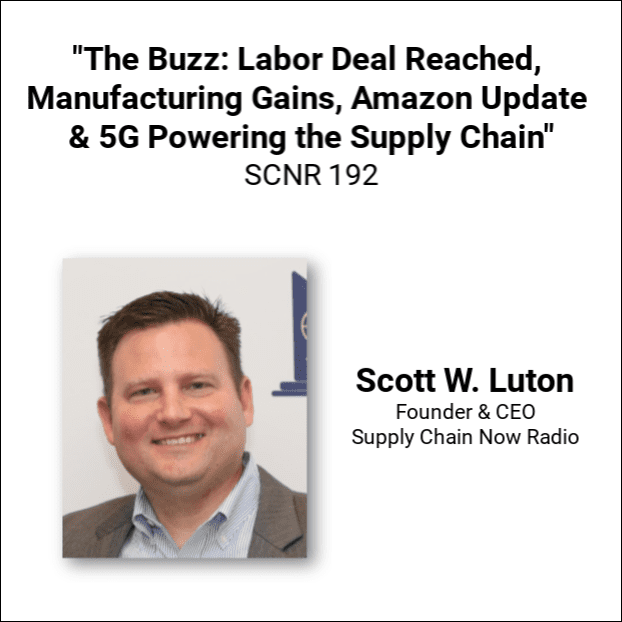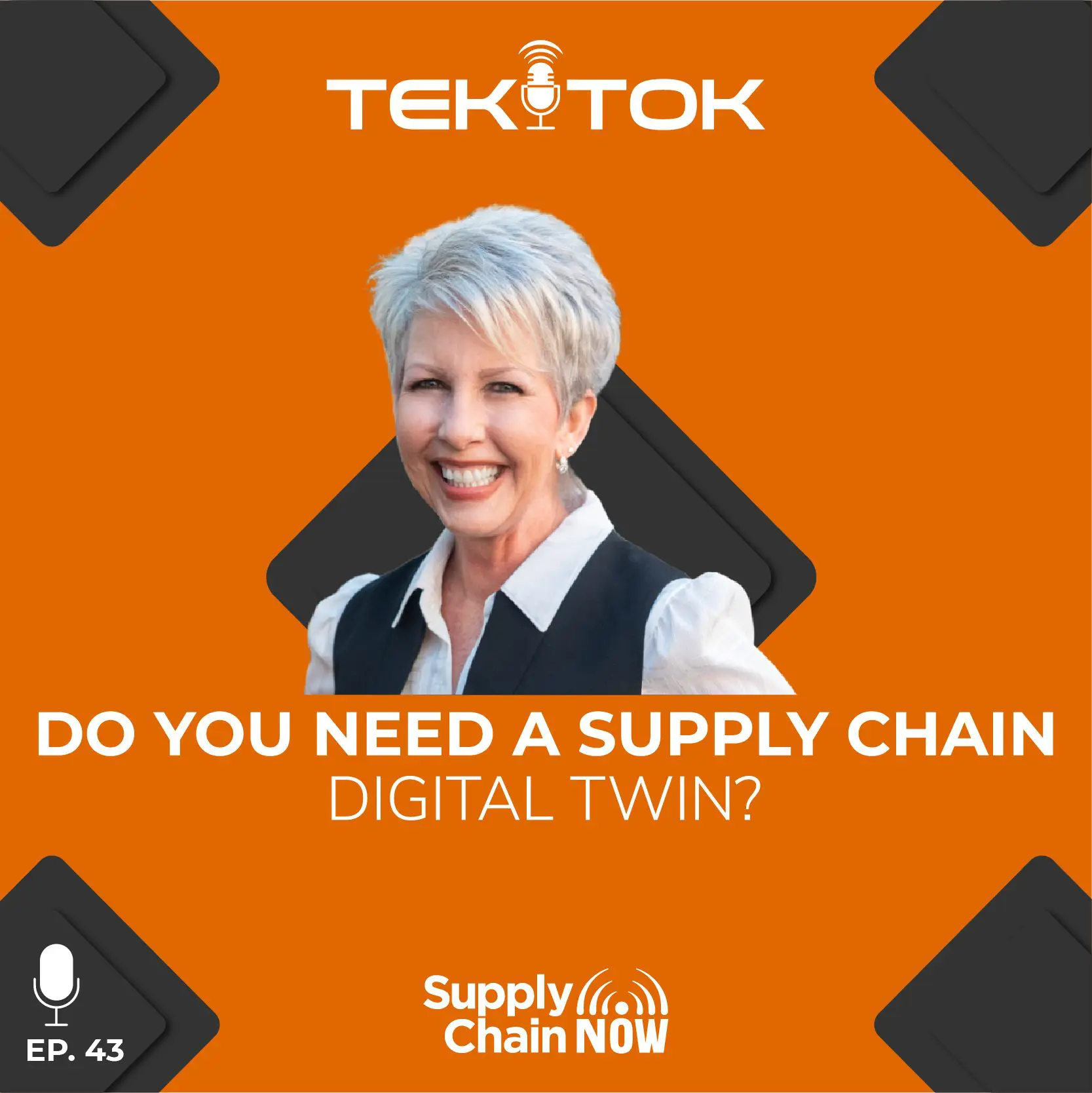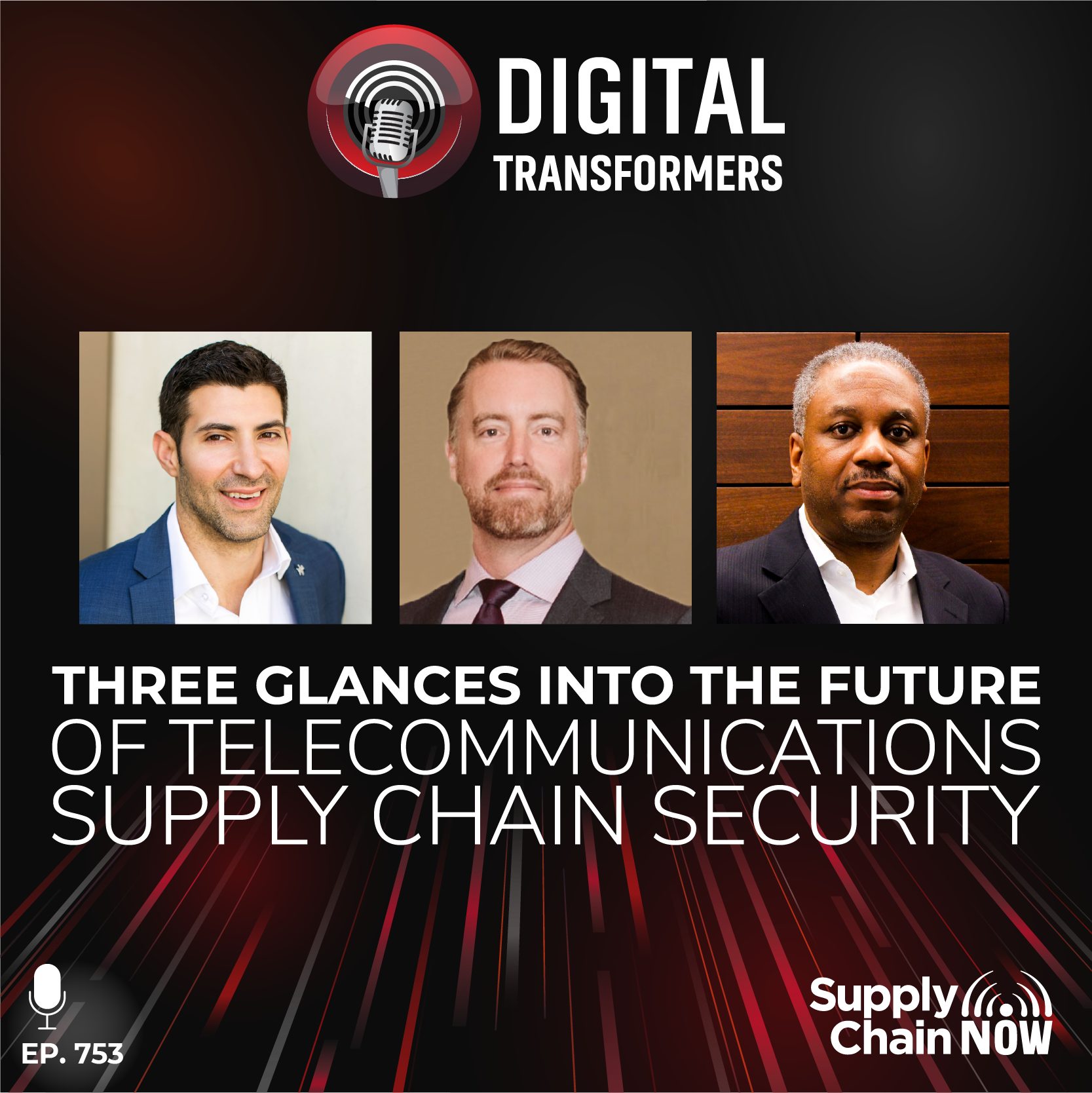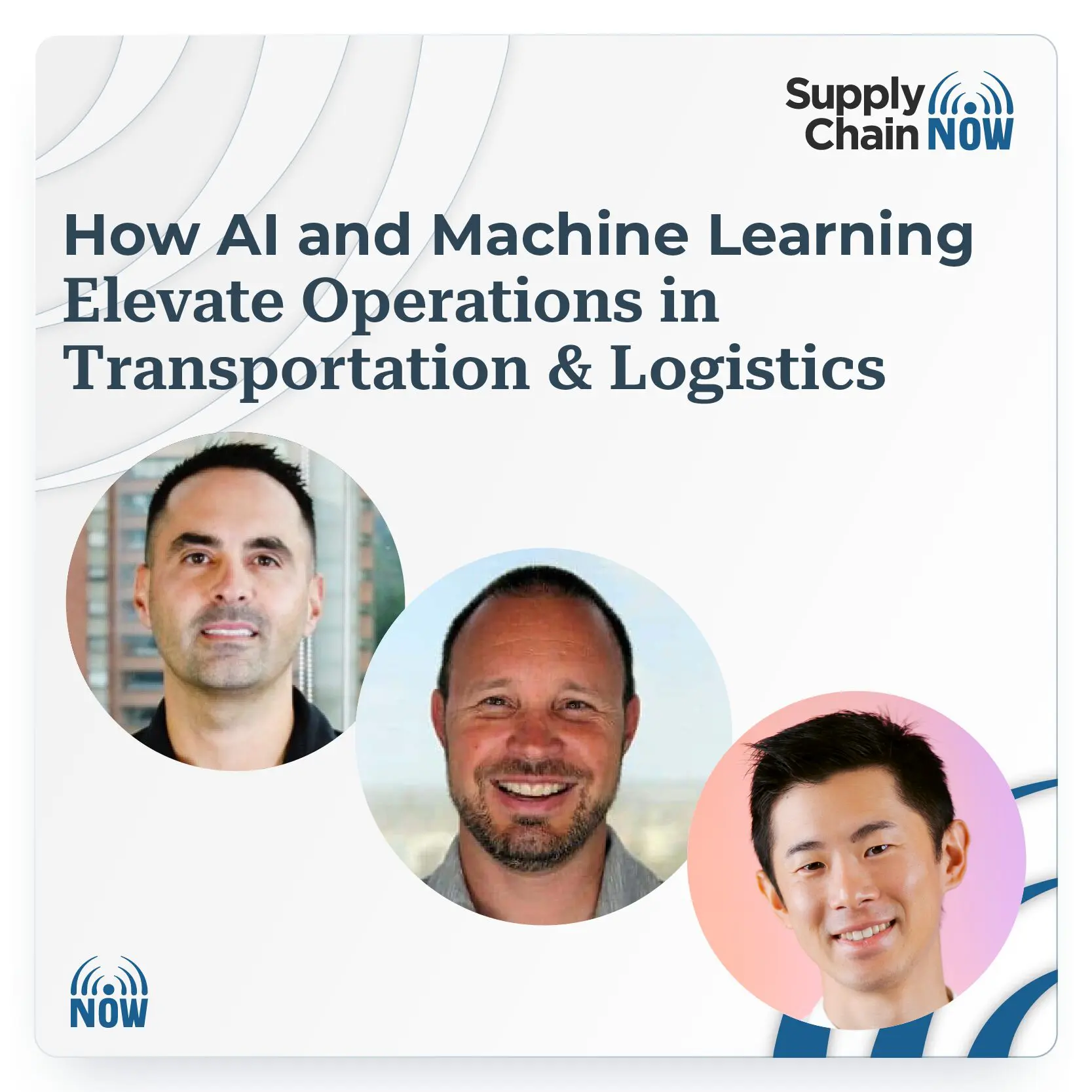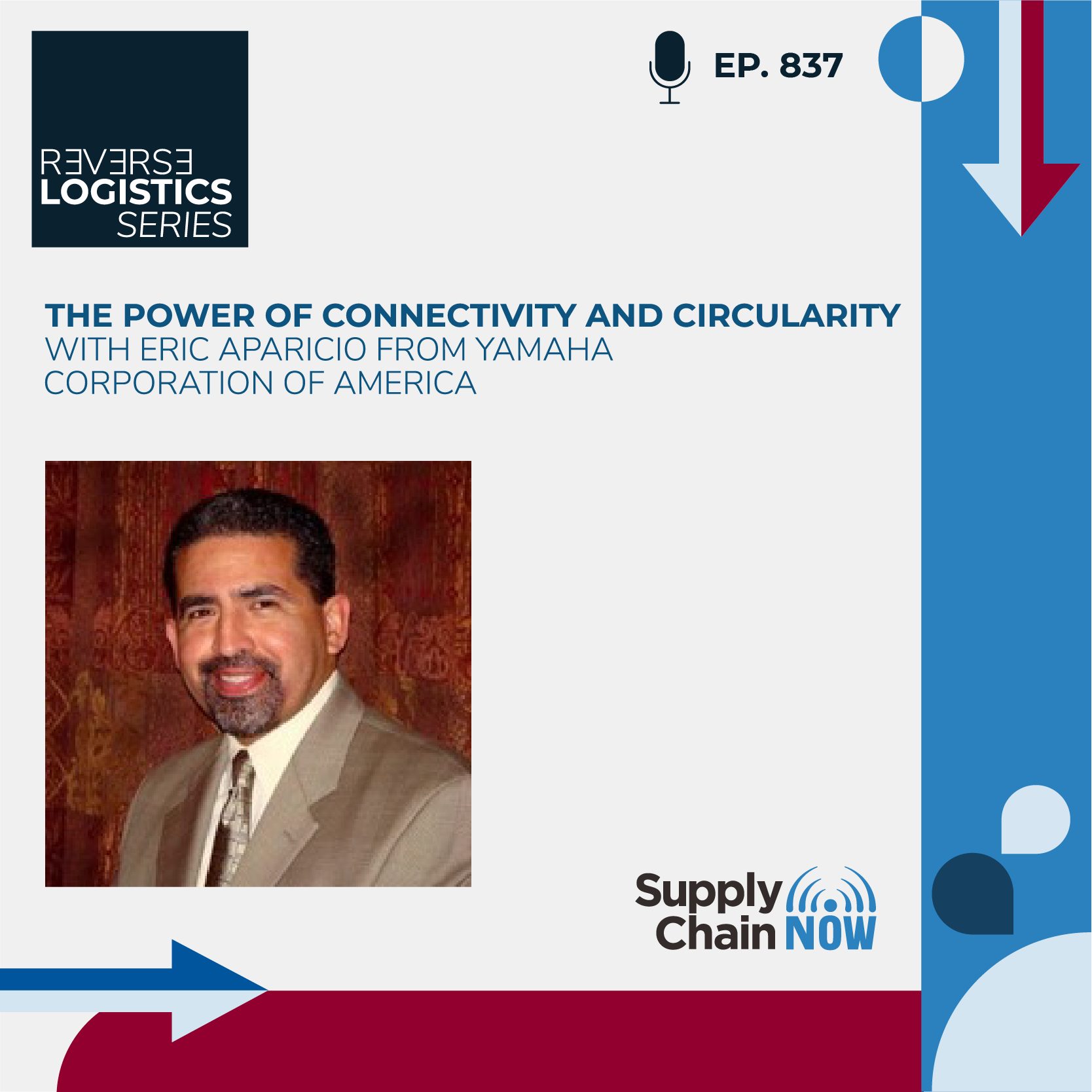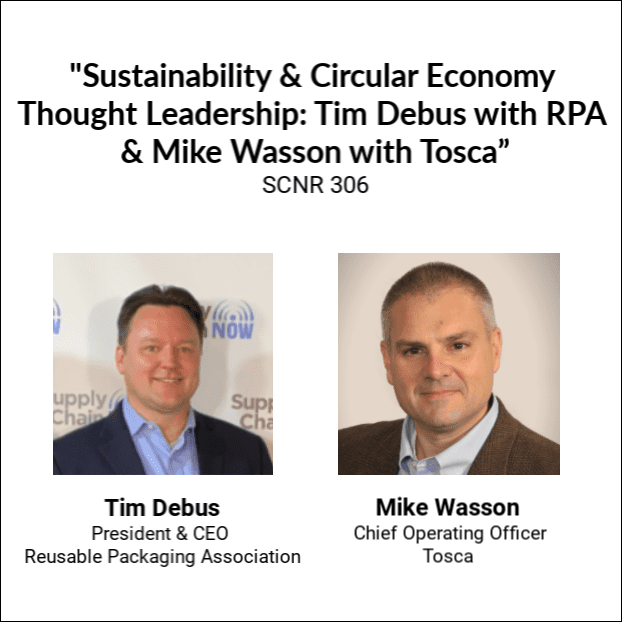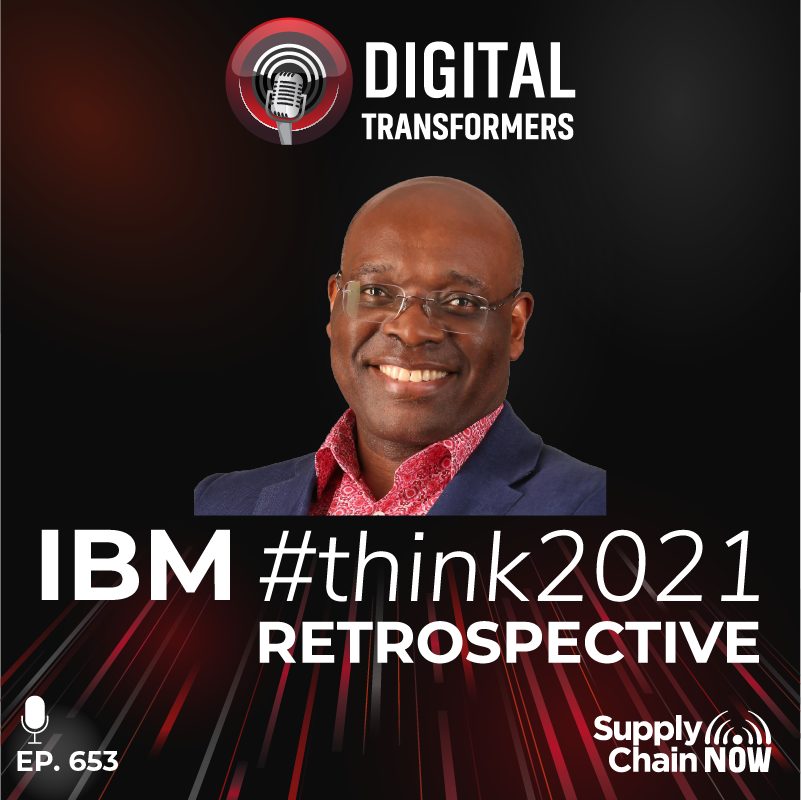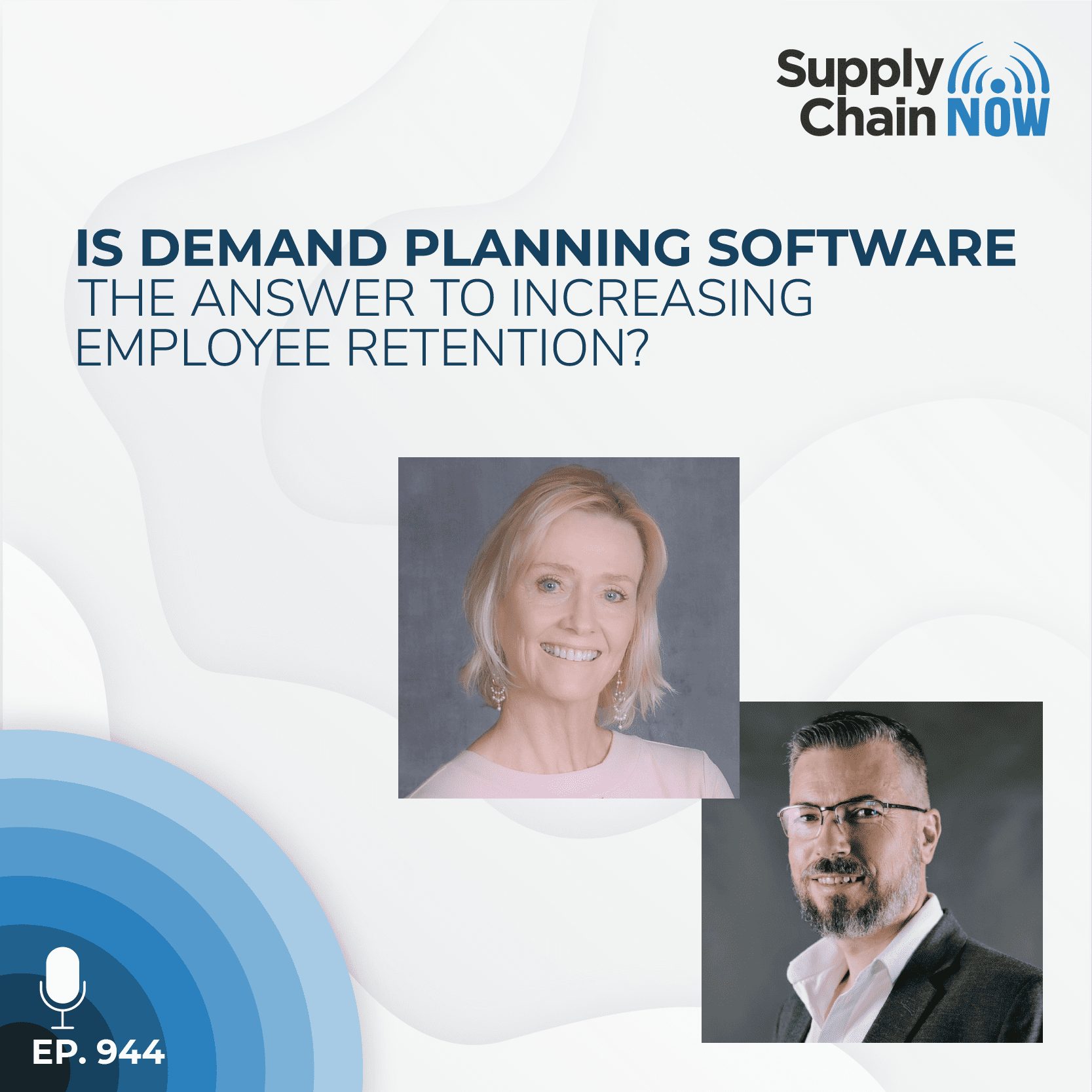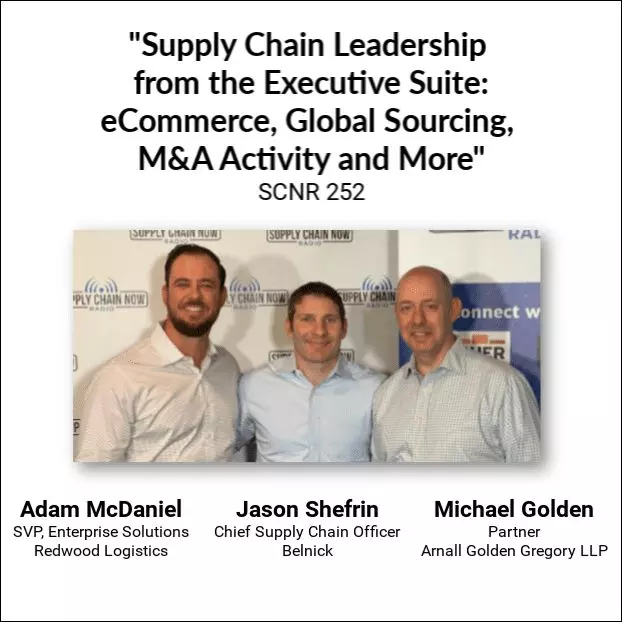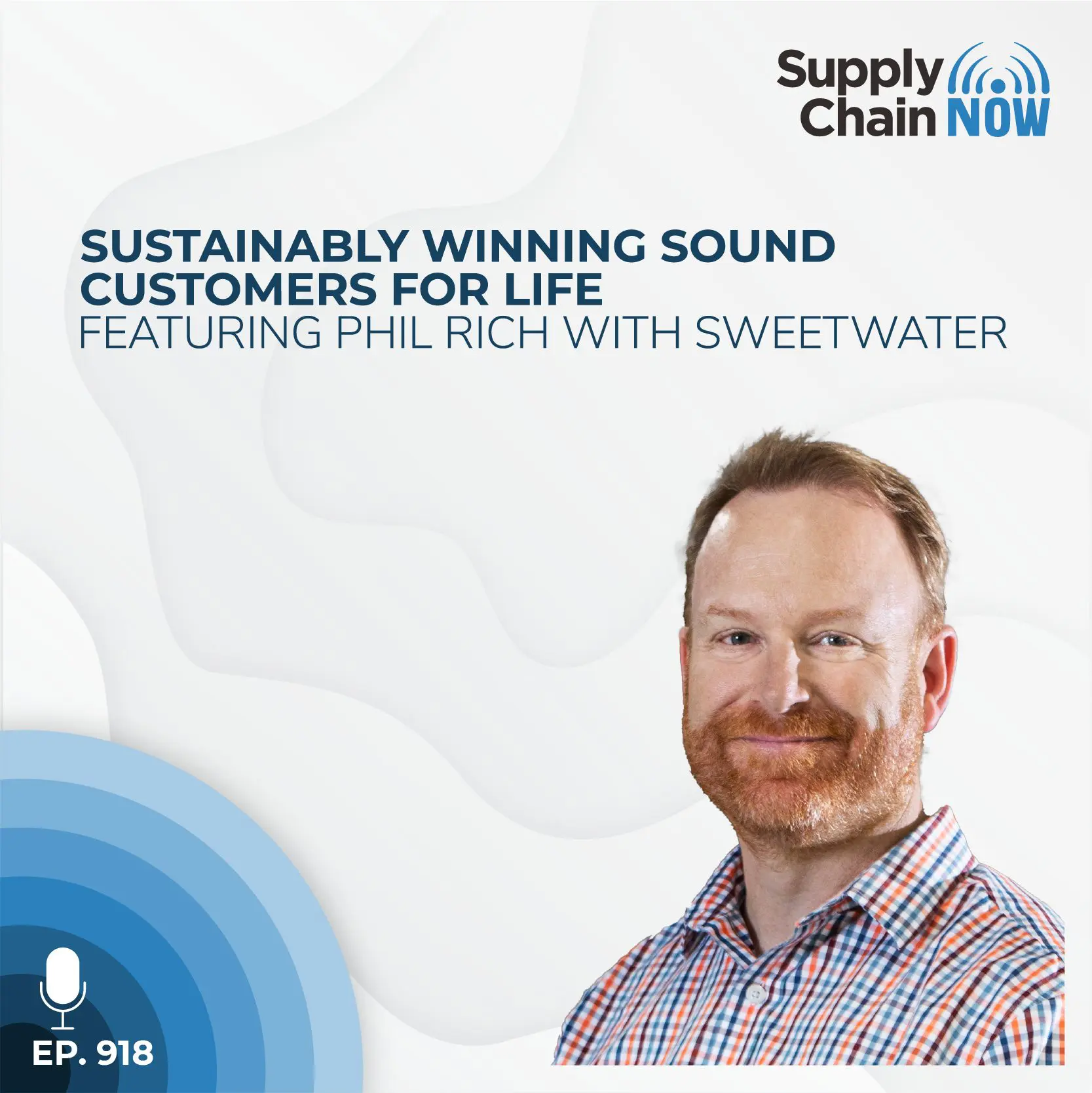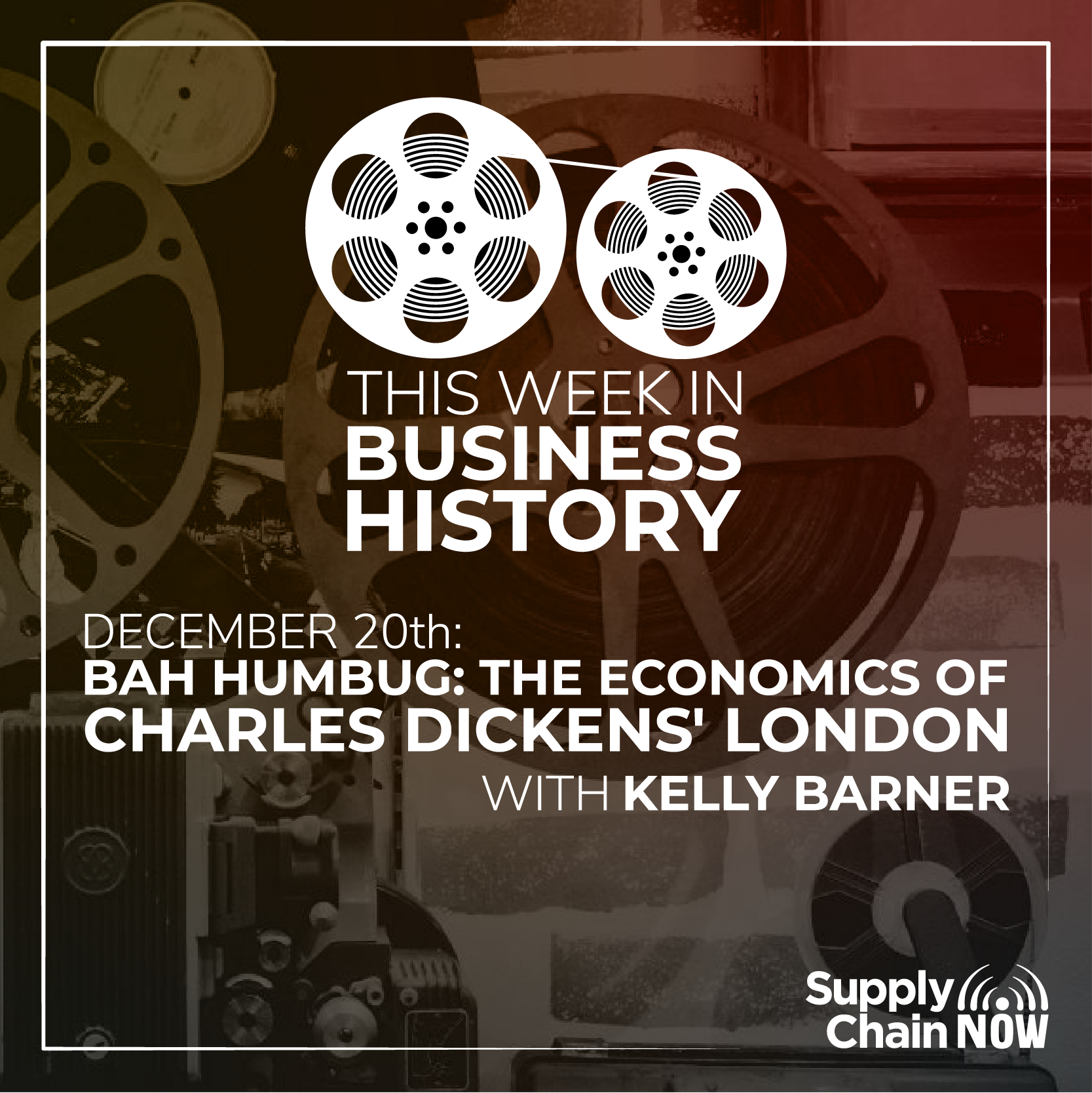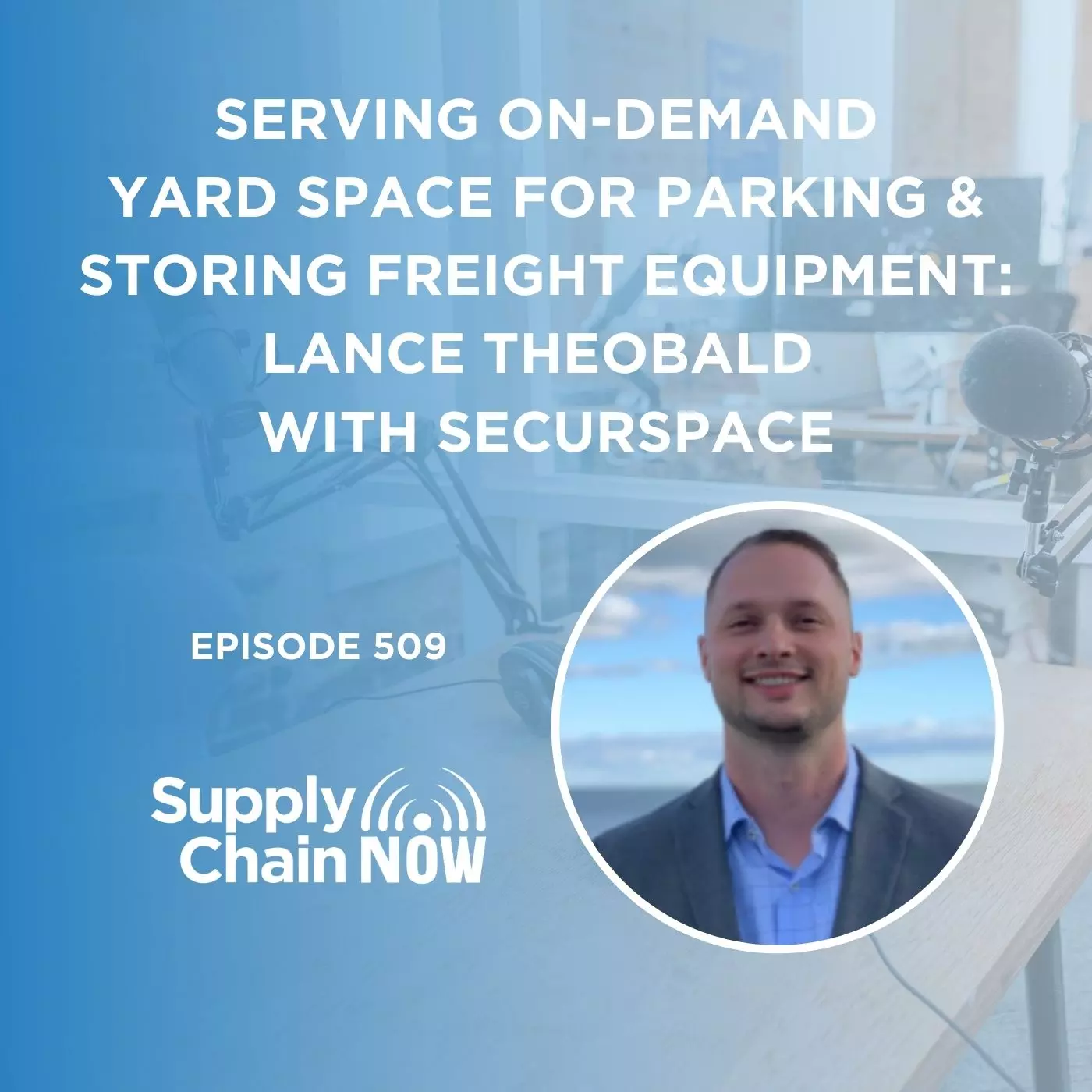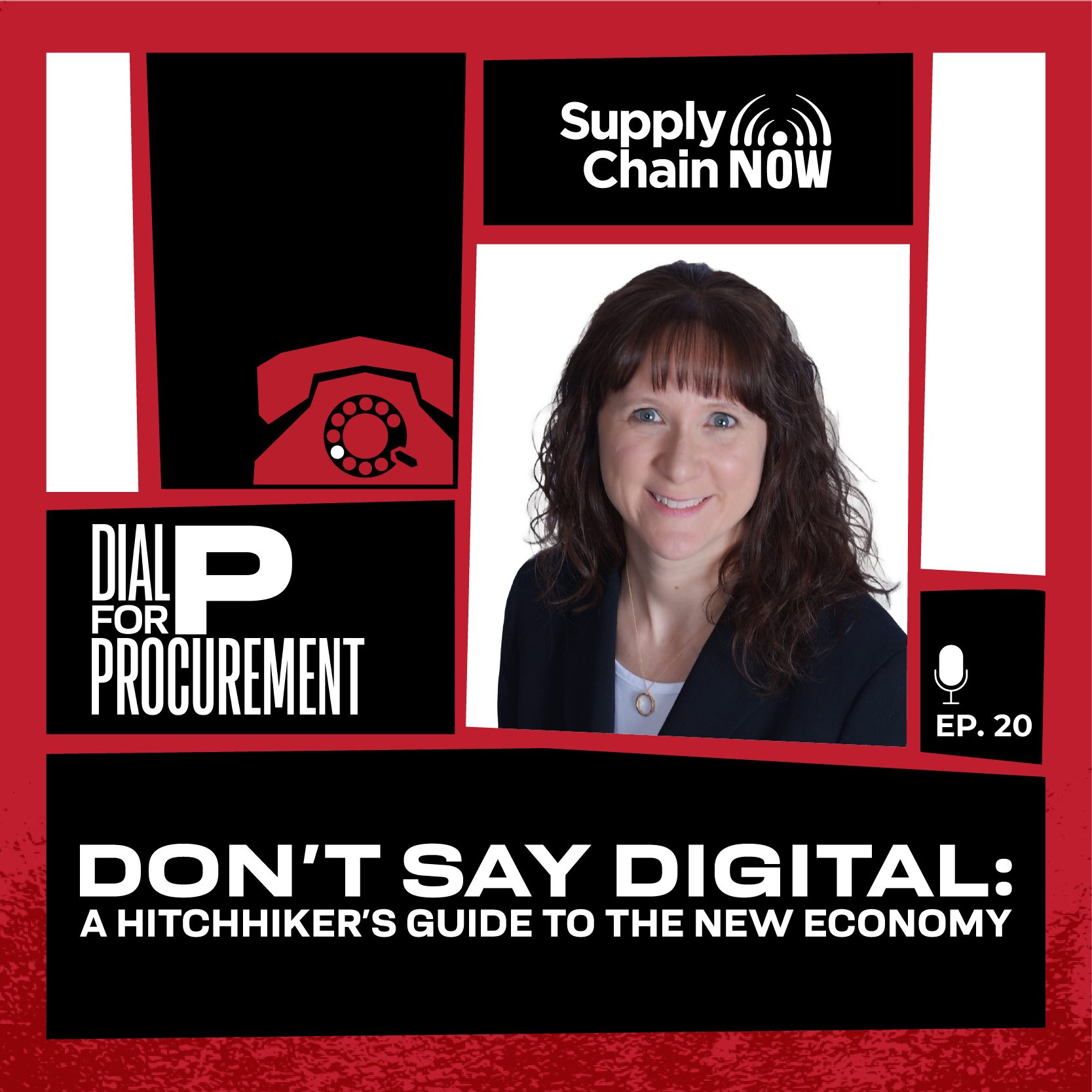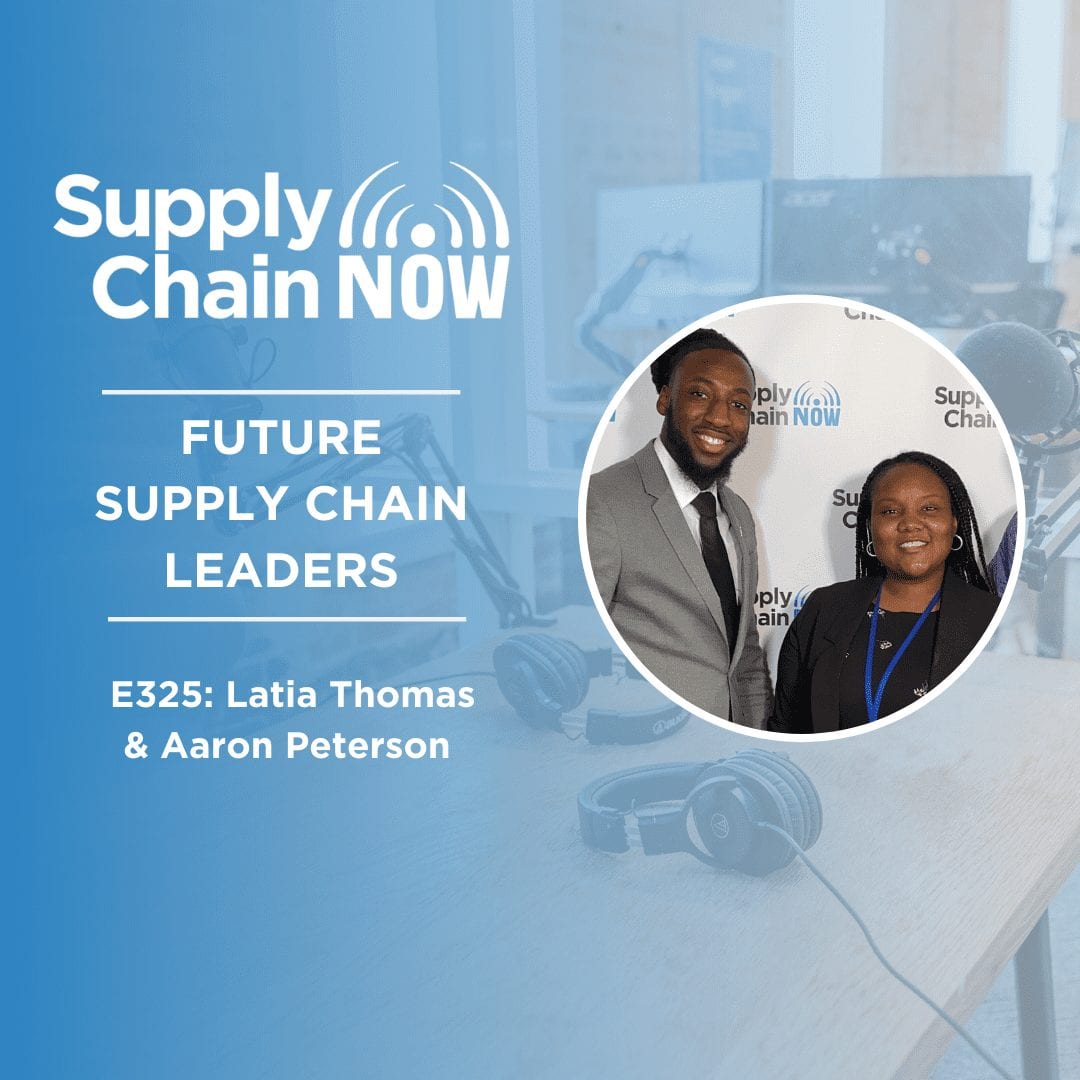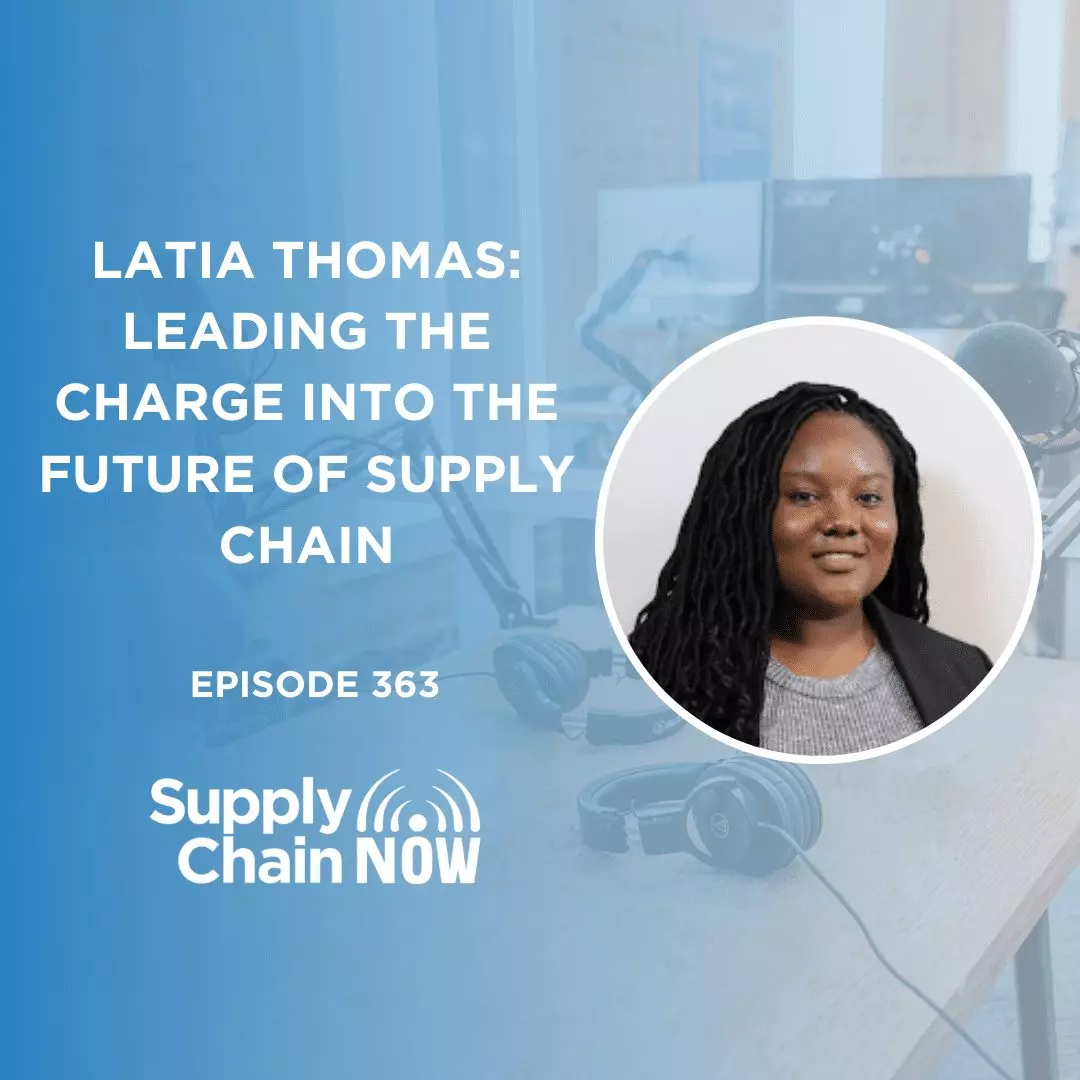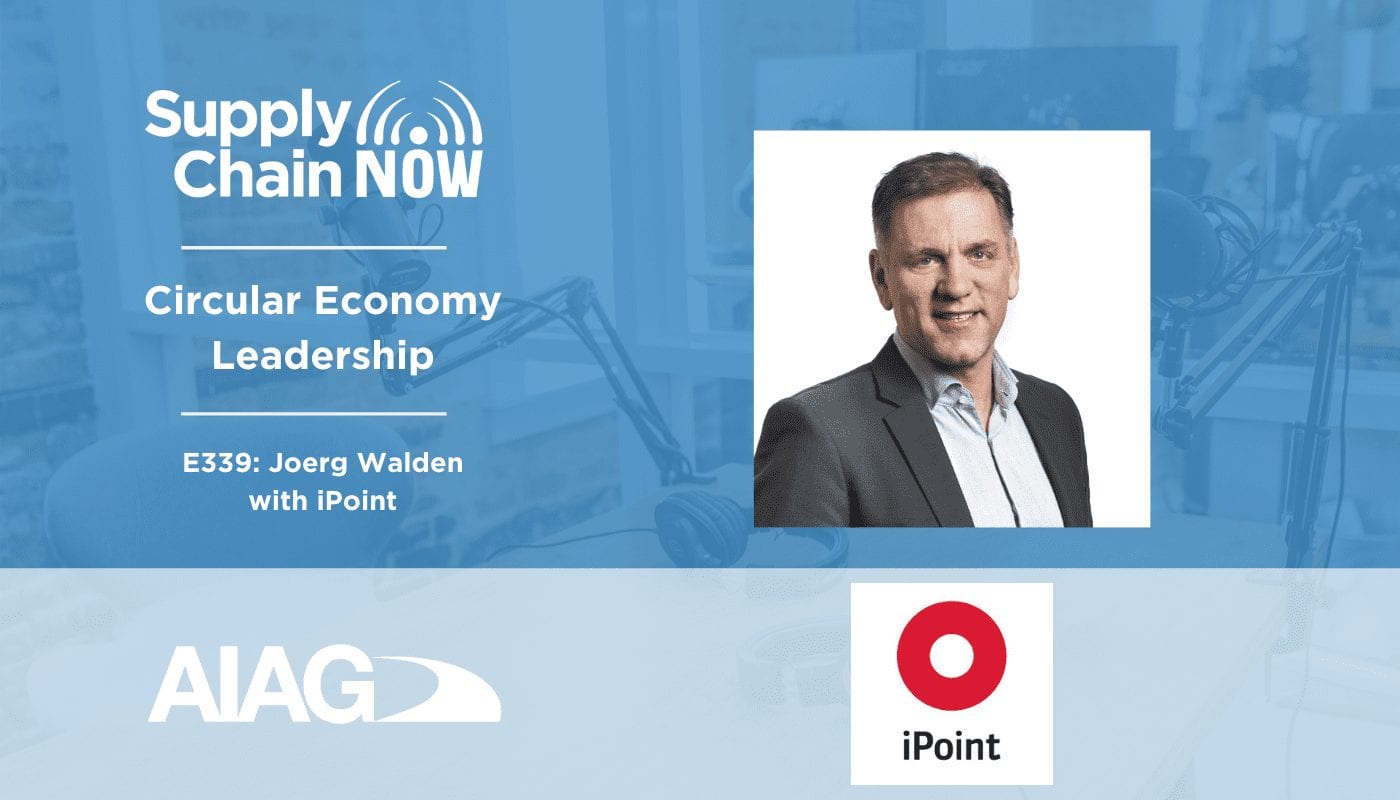
Episode Summary
“It’s so hard to be on the one side happy with where you are, but on the other side, never stop improving.”
– Joerg Walden, CEO of iPoint
How might your business or operation change if you were no longer able to operate on the assumption that you could buy as much as you want of every product and service that you need?
This is the key question that Joerg Walden, AIAG’s CR Summit speaker and CEO of iPoint, asks companies that are either overly dependent upon (or growing weary of) the traditional linear supply chain. As a multi-time entrepreneur with a background in process optimization and technology, he and his team work to help companies manufacture, use, and re-use truly sustainable products, with the support of digital data.
In this interview, Joerg points out to Supply Chain Now Co-hosts Greg White and Scott Luton the core mindsets that have to change in order for businesses to become more sustainable:
· Recognizing how important it is to consumers that their products come to them from responsibly managed, ethically sourced, and minimally wasteful supply chains
· How digital representations (or digital twins) can be used to analyze and reduce waste streams
· Reimagining the value chain, resource utilization, and sustainability with a mind to bracing for supply chain disruptions – even with our current levels of connectivity
Episode Transcript
[00:00:05] It’s time for Supply chain now broadcasting live from the Supply chain capital of the country. Atlanta, Georgia, heard around the world, Supply chain now spotlights the best in all things Supply chain. The people, the technologies, the best practices.
[00:00:22] And the critical issues of the day and now here are your hosts.
[00:00:28] Good morning, Scott Luton here with you on Supply chain. Now welcome back to the show.
[00:00:33] On today’s episode, we’re speaking with a leading provider of software and consulting for environmental and social product compliance and sustainability. This interview is part of our continuing collaboration with the Automotive Industry Action Group A.R. Agee. So stay tuned as we look to increase your Supply chain IQ. Quick programing note before we get started. If you enjoy today’s conversation, be sure to find this and subscribe wherever you get your podcast from. Welcome in My Partner in Crime, my fearless co-host here on today’s show. Greg White Serial Supply chain. Tech entreprenuer and trusted advisor Greg. How you doing?
[00:01:11] Doing great. Thank you. It’s you know, it’s good to have all these folks from the AIG group get together and share their thoughts. So looking forward to this one in particular, because we’re going to talk a little circular economy.
[00:01:26] Absolutely. It’s been a pretty robust group of thought leaders. And I think today’s conversation is going to continue that trend. And with no further ado, we’re going to welcome in our featured guests here today yawk Walton, CEO and founder of APOINT Systems. Your good morning.
[00:01:42] A good morning, everybody. Nice to be here. Thanks for the invitation.
[00:01:46] Absolutely.
[00:01:47] We have Greg in your report. Reputation precedes you. We’ve heard a lot about what you and your team have been up to. We’ve managed to also interview one of your colleagues and really looking forward to picking your brain here. Do that.
[00:02:01] Thanks. Thanks for the chance. Simply opportunity. So happy to share some of the ideas and some of the Wisconsin strategies we are building here.
[00:02:09] Outstanding. Outstanding. Well, you know, like we talked about, Greg and I are always curious up front. These interviews get to know you a little bit better, getting our guests a bit better. So if you could share with our audience, you know where you’re from. Give us the goods on your upbringing. And of course, we’re curious about your professional journey kind of in a Reader’s Digest style.
[00:02:31] Yes. Sure. Sure. Thanks. So I’m coming out of the city stood. But.
[00:02:39] It’s a little bit like I’m always comparing this. It’s a city like like like Detroit. So an automotive place, a lot of industrialization, a lot of I mean, that difference to a to what we see in the US, a midsize and small size companies. So I think that’s a city where we say, oh, look, we’ll build your home. It’s the major point here. So I think it’s a really hot looking area, really Industrial this area, engineering area. One of the half of Germany, I would say that’s quite an interesting area with industry digitalisation, though, it’s really driving the motivated people in this area to York.
[00:03:22] Did you grow up in Stuttgart?
[00:03:24] Yeah, I’m originally born a little bit a little bit outside Stuttgart. So it’s 20 months, 20 months away. It’s right-leaning. It’s cold. So it’s a wedding to being it’s a little known U.S. city, I think, to being a little artificial intelligence and siplon. This is one of the hop in the world even. And I think I’m grown here. So I’m born here. I’m sitting here. I’m not leaving here even if I’m traveling around the world all the time. So just tried to come back to my fundamental area. And if you would see what I would see, no. Outside of my window here with the mountains and everything, you would love this area.
[00:04:03] Mm hmm. Greg, a quick departure here. I know you have spent a good bit of time in Germany. Ever been a store guard?
[00:04:11] Oh, yeah. I’m a huge fan. Of course, it’s the home of Porsche and Mercedes.
[00:04:14] So it is it is the Detroit of Germany on I don’t want to say steroids, but it is it’s an up first of all, it’s in a beautiful part of the country, as you said, your. And it is just such a home of fine automotive crass craftsmanship. And, you know, when you’re heading down in that part of the country, you’re heading down towards the Black Forest as well. And the border with Austria. And one of my favorite places, Boden’s.
[00:04:48] And yes, I don’t know. It’s just a great town.
[00:04:51] So you almost painted a picture in my mind there. Drag you, you and your guy. I love that. All right. So we’re going to talk a lot more about your organization, your. But before we do that, prior to founding our point, give us give us a roll or two that really shaped your world view.
[00:05:13] So I was born with two brothers. I’m in the middle. So so-called sandwich. Oh, it’s always the hardest thing. The youngest are the nice one. The oldest have to fight. And you’re in the middle have to fight against the youngest and the oldest. So I think it’s quite a I think an interesting way to grow up.
[00:05:32] So my father and was born in this family and my father was also a company owner. So it was really from the beginning of my life trying and understanding. What does it mean to be responsible to take your own responsibility? What are you doing to live? Was all the hard to say connected world at the end? Employees, government and all the other things, what you need to look into. So I think I was really quickly understanding. What does it mean to work on the one side, on the other side and try to identify the differences? And this was really a fundamental stone. Or how about you call this milestone in my life that I never looked as an employee? So it really started even when I was studying my father’s business. So I think this was maybe a fundamental learning in the young, young, young years of my life, how to build up organizations, how to manage this, how to be responsible by yourself to make these decisions, how to love what you do, not just 8 5. So really 24/7. I think that was a fundamental grow and find a millstone in my growing up. Mm hmm. Yeah. And I think maybe it just it sorry, just another I think a loved technology. I’m reading mathematical technology driven from the beginning. I had a horrible career at the school. Yeah. So because I did everything learning. I was always practical. I try to improve. I tried to understand and what was more on the practical side. So read it. Trying to do things and not just to sit somewhere and doing some whatever things in the school. I think this was another point. A lot of trouble in the school to reach at the end. My exam and did my study and I.T. and technology and automation. But this was quite a hop, hop and painful pop for many, many years.
[00:07:32] We’re kindred spirits and being practical. I’m a very practical minded leader myself. And in fact, my wife still on one of our earliest Valentine’s Days, you know, fifteen, twenty years ago identified that she did not have an umbrella. So I gave her an umbrella for her Valentine’s Day gift. So maybe two pratical. But I can appreciate where you’re coming from.
[00:07:58] It was no, no vacuum cleaner.
[00:08:00] At least that’s an interesting perspective because I would say that the most studied.
[00:08:09] And I don’t know if I want to say most ambitious but most focused ambitious is my middle one as well.
[00:08:17] So you can see that sort of trying to figure out how to fit in or get any kind of attention, I imagine, as a middle child. Right. And how that plays into your ability to see both sides of a discussion, argument, point of view, whatever. I hadn’t really, ever really thought about it that way.
[00:08:40] Interesting. I think it’s you know, it also builds a little bit the fire inside. It’s so hard to be on the one side happy with where you are. But on the other side, never stop improving. I think that’s also, I think, a culture, what you typically learn if you are sitting somewhere between. I mean, that’s a culture that you have to be on the one side happy and where you are. What are you reaching and thinks why you should never, ever stop learning. So I’m reading so much. I’m looking I’m always interested in trying to get full mindset behind. That’s still the culture. What I’m doing today and even at a C.O.D. Deeply inside understanding technology and other criteria is quite an important point for me.
[00:09:21] So on that note, Greg, let’s let’s dove into our point systems. Yeah.
[00:09:28] So first of all, maybe just give us a little bit of a progression how you landed at I point and then and then tell us a little bit about the company and what you all do, because particularly I mean, even before all all of this pandemic came down, what you’re doing is very much in the forefront from my perspective, very much in the forefront of supply chain and commerce generally. So, yeah, maybe, maybe, maybe Grego.
[00:10:00] Let me just step a little bit before I pencil the first. Like I said, the first company I founded was really looking about process optimization. And with nearly the first pieces coming out at this point of time. So you can stop thinking how old I am at this point of time. We really started optimizing internal productions with automation of I.T. technology and things like this out of this. I founded another company then who was really looking about a quality manufactured execution. So how do you connect the internal systems in an organization? This wasn’t the 90s yet. How do you really build all the manufacturing execution, quality management product to planning systems to many systems silos in place? And I didn’t like that. I said we have to think about processes. This drives me my whole life. Think about process or something. Look in the vertical area. So it’s really important for me. And then in the 90s, what I saw was the Internet. And then it was really blowing away everything. And this was quite clear for me that the way organizations would look in the future would totally change. This will not like we have today. What we did inside the organization is that this is we have to go one level higher. We have to go through this enterprise to this world wide connected organization, an organization. It’s not limited to the boundaries. One organization. It’s limited to the products, to the processes, to the plant. And this would be a lot of different parties, a lot of different people who will be involved. Organizations, companies and whatever. So there will be a totally different way how we will see the future connected businesses. At this point of time, I said, okay, I’m getting out of the first company.
[00:11:49] I was jumping into the new one. And this is also think about the main point I play comes from integration point. So for me, it was clear.
[00:11:59] We come into a new dimension of how do we integrate organizations and companies in the future. And this is really the founding idea of ideas of 5.10 and it’s connecting, connecting the silos not only inside the organization, also Obote, totally new ACO system, a totally new operating system for sustainable products. If you want to call this in the future.
[00:12:22] Well, your point. I mean, you you enunciate your point of view pretty clearly on your home page.
[00:12:27] And I think it’s a it’s a very simple description that I think would be really helpful to companies that are.
[00:12:37] Trying to understand what’s going on in in circular economy and how and where you start and end, if you can even say that if it’s go ahead. You’re yeah.
[00:12:49] So I think for us for us, it’s a circular economy. It’s broaden your mindset about what do you do at beginning.
[00:12:59] So it means really and typically you see a lot of companies who are specifically nowhas then pedantic issues. What we have at the moment, I’m not interesting with the materials coming. I can buy everything I’m interested in with the components. I can buy everything.
[00:13:13] So the boundaries of the thinking is starting in the entry point of your plant and stopping if your product leaves, maybe your plant. So I think that’s quite strange. And this will not stay in the future. Specifically, after what we see at the moment, the people with more and more start thinking about, oh, maybe we can buy everything what we think we can buy in the future. So how can we secure our response or resources into supply chain? How can we build a better model where we understanding what which fields are we using, how often we are using, where are they coming from, how they are sourced and all the different categories? We have to get a lot more information on the one site at the beginning of the design of our product, but also on the other side.
[00:14:00] If a product leaves our plant, if we sell this as a customer, I’ll give this away to the next business customer. What is done with the product? How is it used? Is it over engineered? Under engineered? Can we maybe just give it away and take it back? So ID like a sharing economy model. So we have our resource container for the future. And this is exactly what we are trying to connect all the different dots of information silos where we’re trying to get all the different points and angles together to understand the beginning and the end of the lifetime of potential and maybe extending lifetime. Some other things for the future.
[00:14:40] Well, I think, you know, one of the aspects of what you do is you include you mentioned sourcing, but I think particularly because of this conference. Right. You not only identify what is sourced and where it came from and what it is where it goes to next. But also and this is a particular point for me, whether it’s sourced ethically and today a company’s supply chain is no longer in the background, as I’m sure you’ve experienced. It’s in the forefront and it becomes a part of your brand. And more and more consumers are holding companies responsible for not only the quality of their goods, but the ethicality of their goods and the sustainer ability of their goods. And then and then, as you said, the the re-use and recycling of their goods as well. So are you seeing more companies start to take.
[00:15:40] A more visionary perspective yet or again, doesn’t it? Definitely, definitely, yes.
[00:15:48] But I think if you see, like you explained, we have multiple dimensions. What you need to understand and attach and bring to the point where you can make a decision, this is typically in the product design. So how can you how can you get from your supply chain all the sourcing information, but also a chemical composition and maybe the ability of materials and data and substances. What do you use in your product? And what is the impact on the toxic so that there’s a lot of discussion specifically in Europe now with this toxic stuff? Yeah, garbage, waste and things like this. If you want to recycle, you don’t want to have toxic waste. So how do we identify this? And so bringing these points of material datasets together into a some people call this now a digital twin into a digital representation.
[00:16:37] What has a lot more information available for different parties to the right time? This is, I think, the future where we can see a lot of advantages for everybody in this chain.
[00:16:52] Well, you know, I think we’re going to hear. I mean, everyone who attends the conference is going to hear a lot about that. And I appreciate what you guys are doing to help that. So here’s the question I love to ask your. And and this kind of allows people to understand in a nutshell in very short order what what your company, what kind of problems your company helps them solve. So if I am, I would say walking down the hall in my office. But if I am sitting at home in my office or at my work or bar. And and I’ve got a problem. And I just can’t annunciated I can’t figure out how to solve it. What are the key words going through my head or the pain that I’m feeling that would have me contact you guys at I point to help me solve this problem?
[00:17:44] So I think it depends on what role you are setting. I mean, this is quite interesting challenge opportunity.
[00:17:52] We call this fall a product. We ve UPS preparing different roles for different people in the organization. If your for example, if you are responsible for the design, you have to think about, OK, if I’m designing something now and I want to shift this in different regions of the world. Connectiveness Is this allowed? Is the packaging the tool I’m using? Right? Do I have the right information? Or of the increase sense of the product of the toxic substances in this product? How do I get if I’m buying a lot of components and parts and assemblies and attaching this, how do I get all these information and can make the test of the specification? So all these kinds of information, you should know if you are sitting more in the pictures area you are responsible for, OK. Like you said, oh my, Brant, I have to be careful. Where do I buy my maybe Liegghio for my electric car because I want to build the real sustainable, wonderful sustainable car. And it would shut my brain down to this if if something would be in to try and work building the Liegghio. Oh no, that’s definitely something you don’t want. So you need to cry over multiple steps in the TSC. We know we have multiple steps before the mine comes.
[00:19:07] How do we ensure that this lead to what you’re putting in? This battery is in line with your company, whatever you would define here, regulations you want to have. Yeah. So I think that’s that’s the biggest question. And so really depends on where are you sitting or another tragedy for sustainability. Everybody writing specifically in Germany, carbon neutrality. We have to have this plan. 2050, the carbon neutral city should be here in Europe. And so everybody announced, no, we are carbon neutral. But what does it mean if you have an electric vehicle? Where is most of the carbon generated generation of the product? Nothing. The lifetime of the product. We thinking we have electricity. So you have to look exactly what are you supply us doing building this car if you want to go carbon neutral. You have to find out how can you do this in supply chain. So that’s a total different responsibility, I think.
[00:20:05] I think it might be as simple as that.
[00:20:07] Based on what you’ve described is if I have any of those concerns, if if circular economy or sustainability or ethical sourcing or any of those things are my goals and I don’t know where to start.
[00:20:20] When I look at your kind of circular model on your side, it tells me that if if the biggest question I have is where do I start? That’s when I think you all sort of come in and give people a starting point based on, as you said there, which is your first and primary priority.
[00:20:43] I don’t think your pain point, whatever. Yeah. Each of those goals you just laid out there, Greg. More and more are certainly consumer goals. Right. Yeah. And and more more leaders like Juergen and his firm are answering the call. And it sounds like helping companies make those massive almost that adjustment. But that doesn’t do it. Justice transformations. To answer that call. So let’s let’s do this year. I want to broaden the discussion. A bit of that. Well, we’re already at a good altitude. But but apart from our point systems, as you survey this challenging, uniquely challenging landscape that we’re in right now. You know what? What? Globe, what one topic or development or innovation in across global supply chain really sticks out in your mind.
[00:21:40] I think I think the biggest innovation, what we will see is moving into this digital twin now. So I think that the. If we are enabling a product edification, I think the digital twin has a huge, huge value in the future because you have so much data and this is why we always call this a little bit digital. So the economy. I think the circular economy is only possible because we have this connected world. Think about Kobe, 19 million. What does it connected with? I mean, it’s a huge crisis. But at the end of all these connectivity, how are groups building, what organizations doing, how they’re publishing this forward is building ventilate this recipe, a timeless starting general. So the digitalization helps at the moment so much in making the problems and issues visible and generating. You have a huge brain because you can connect a lot of people in the world over the digitalization and it’s really, really small, too. So I think that’s quite the approach. And if you put this knowledge into a product twin, you can think about what can we do with this? And even points you don’t know today, how can maybe the resources mature used think about the future.
[00:22:56] If we getting more and more problems with us, Mitchelson. So if you would know not today. If you would know. And I think that’s a big value in Europe because we don’t have a lot of resources. But thinking about how can we decouple the growth of the climate system from the use of natural resources? What are the options and if you would. No, no. We have these kinds of products. We’ll be using a lot of those issues, maybe because of the 20 components and we could identify which products we could maybe find alternative materials, substitution and things like this, which we should focus on. That’s a governmental, even a strategic governmental need in the future. If you have twins, you can start thinking about something like this. So you’re not only selling product in the future. That’s my proposal. You’re selling even your data usage information and all this stuff to whoever the data needs and build a new business model out of this.
[00:23:54] Ok, so you shared a lot of their I’m trying to figure out which of those points I want to follow up on what we’re gonna have to have you back Europe for a follow up conversation. One of the big point you made there, one of the big learnings seems like you’re that that you’re suggesting is taking place is prior to this global pandemic that we’re all fighting. And I’m really proud of how global supply chains are are throwing their weight behind the fight and pivoting and doing things that they don’t that they don’t do. Breweries are making hand sanitizer and automotive companies, as you suggested, are making ventilators. It is very uplifting. So we knew going before, you know, before the world changed, companies and leaders were putting a lot of emphasis on on digital digitization. Right. Of the companies creating that digital twin. You’re thinking that is going to companies are going to double down as a result of the visibility that some global supply chains didn’t have during these challenging times.
[00:24:57] That one of the big takeaways are, you know, if you know this, there’s that there’s a wonderful joke going around in the social media. That is, who’s driving the digital transformation in your organization?
[00:25:12] Is this the CIO? Is this the CTO? Is this Corbitt 19? I think that’s exactly that’s exactly the point happening. So I think it will be it will be driven. It will be driven that I think we will see that all over this impact, over this fiscal impact to products, people will really start.
[00:25:37] And this is my my, my really I think the future. Listen, I’m seeing here it’s really start thinking about the value chain, thinking about resources, thinking about sustainability on the long term, because we learning now that even with all the power we have, even with all the connectivity, we have our systems quite stable, it’s quite easy to really quickly impact it if something like a physical hit comes. So I think that that could change some mindsets here. Yes.
[00:26:10] So one quick one of the thing you shared in your earlier points, I really liked because I think it’s up. It’s not just an outstanding thinking exercise right now, but it’s one for action. That’s where you mentioned we got to figure out how to decouple economic growth from the usage of resources, the physical usage and physical resources. Excellent point. And so many companies have already well down that journey and other companies are are just getting started. Ness. OK, but that is such an important thing for leaders to be thinking about and acting on right now. So much, yeah, I want to get more, too, but for the second time, Greg, let’s talk about AIG.
[00:26:56] Yeah.
[00:26:56] So you probably know your. We’re big fans of Jim and Tonya and everyone at AIG and really glad that they’re putting together, particularly at this time. You know, this this summit and what we’ve been asking a lot of the participants is give us some insight into the value that you see in your participation in AIG.
[00:27:29] So I think I read. I love the AIG, we are supporting the H.E., we have a wonderful relationship over that. I would say maybe 15 years long, really. So we are really early start getting into this connection into this network, because I think they are extremely powerful the place. They have a leading industry association with a wonderful network, wonderful looking groups. And we step ahead on a lot of things, whether trying to solve problems, not on the company level. They are trying to build this co-called petition networks. I think I love this. Specifically in the U.S., you see this often that a lot of companies are looking together, even if that competition, if they’re finding it common sense. So you can change things a lot fast because you have a lot more power behind it. I think this is something what AIG wonderful did and this is why we are supporting them. Oh, yes, no. And then even in the crisis, we supported them, even in all the other things. I think you said, no, no, we have to stay together. I think that’s something we can change together. We have more from the I.T. Forget technology from the process side. AIG with that wonderful members and looking groups from the business side. And I think bringing this together, it’s a huge value for everybody. And I think that’s quite interesting. And the biggest one just I think we build it together with the AIG, the social impact platform for conflict Minot’s. This is 2012, not really far ahead from everybody who stopped thinking about something like this. So I think this was born out of the idea that no legend that trust each other. And this is what I really love and be agile organization.
[00:29:09] I think that, you know, that’s a really good point. They create a really this is so so 2020. They create a really safe space for the co-optation that you’ve described. Right. They make sure that all the parties are are protected and comfortable sharing. What what benefits them as well as the rest of the organization.
[00:29:34] And I think this corporate responsibility summit is a particular value. You know, as I said now. But your theme is very similar to what we’ve we’ve heard from others. You know, you get out of it far more than what you put in. Yeah, I think that the mindset. Oh, yeah. A quick shout out to them making this summit free was a big move. Right. And I think it shows in difficult times that, as you said before, even in the you know, in the last sort of downturn in difficult times, they are there for the industry. And that speaks volumes.
[00:30:13] Yeah. 100 percent agree. I think it’s quite, quite important that that be trying to find a noncompetitive areas, trying to find common ways. I mean, there’s a lot of discussion, for example, with blockchain at the moment. Technology, blockchain, end to end, transparency and all this stuff. And if you see no physical, what’s really ongoing in the different, it will never, ever hope and change something. If the companies don’t understand the mindset and if you don’t build something together, what had a huge inter-operability connectivity? We just have a blockchain silos like we have data silos at the moment, so it will not change. So we need strong support from organizations and partnerships and relationships where we make the cake big and then we start putting it. But not really. Everybody build his own small piece and it will start something. It will not work even in the I.T. infrastructure. This blocks everything. We have to work better together. We have to build solutions for helping organizations and not just looking in a small island and thinking another island, another island, another, not another island. So it will not go away. If you think of the suppliers he has 20 solutions to solve, then it doesn’t help him. It will not go away. And this is where we need these kind of organization. This power who builds and try to help to build standards and try to improve faster.
[00:31:45] Celeste’s I’m sure you’re going to strike a nerve with so many of our audience members on law. The outstanding perspective you shared here. And again, for some of the topics that we’ve uncovered during this session, we could we could. It would take weeks, I think, to have the proper conversation around these these big, meaty topics. But but for today, how can folks want to make sure that our audience can follow up with you and compare notes and certainly connect with apoint? Tell, tell tell us how we can do that.
[00:32:21] Yeah, I mean, we have a multiple office in the world. That’s the one point and the easiest way for Qwest’s to to go onto our Web site. So I quintet’s systems dot com that’s I think a quite a good place to find the first information. We are for sure. At the link then we are my Pilson even as presented Linked-In or Twitter. So just ping me on request information, ping the other people on. We are sharing a lot of contacts also. So we’re really happy and tried to help where we can and the different industries starting automotive, electronic medical device and manufacturing industries, all these. I think it’s quite important to link these together and specifically electronic as we know, quite important in the automotive area too. So try to connect me to a social media or my colleagues everywhere in the world. So we are really happy to help you where we can.
[00:33:15] Outstanding. And I also enjoyed your comments earlier about just how important connectivity is and how connectivity is is fueling innovation. That’s a that’s a really important point, especially in these shelter at home times where, you know, maintaining connections is a bit more challenging, but we’re finding new ways to do it.
[00:33:38] Hundred percent agree, I think these days are definitely showing us what we have reached with this possibility to connect, to make Web sessions, video sessions all over the world. And I think this if you look now two years back. And so I think we will see. OK, what did we learned? Corbin, 19. And what did we change our processes? I think one of these points will be really how do we looking together? How do we building communities? How do we use digitalisation? This will be on the percentage point we have to establish this. And so we can develop faster. The changes are easier and the movements are a lot, a lot quicker.
[00:34:21] Great point. Greg, what a what a great conversation here we’ve been having with Europe. Walden, CEO and founder of our Systems Europe. We wish you and your all of your colleagues all the best. We look forward to reconnecting with you, maybe even in person or one of your next visits to the country as we as we broke through and get into more of the, you know, the new normal here, hopefully in the in the weeks ahead.
[00:34:49] Also for my side break. Linda, thanks for the tons and the opportunity I got here to talk with you a little bit and for sure. Please, please all stay healthy. That’s the most important thing at the moment, I think. But I think if we do this together, if we are connected and learn fast enough, I think we can change and we hopefully learn for the future. So stay healthy and learn about the future. Thanks for the time.
[00:35:14] Outstanding New Year. Thank you. OK. Greg, before we sign off, you’re one big key takeaway from this conversation with your Walden.
[00:35:25] I think the one big key takeaway here is that this is a community effort, right. What your and his company facilitates requires co-optation cooperation, information sharing and that sort of thing. And and we’ve seen in industries aside from automotive that be very, very beneficial if you think about technology and how they openly share certain things. And that has accrued to the benefit of all companies out there.
[00:35:58] And I think as more and more and more automotive companies see that possibility and think of it from a if you want to call it Silicon Valley perspective, that that kind of sharing can can bring benefit to every company. You know, I mean, if you go way back. Volvo shared their patent for the three point three point seatbelt.
[00:36:24] Right. And things like that happen in industry. I just think we need to explore other areas where that can happen as well to the benefit of everyone.
[00:36:33] Great point. All right. Well, big thanks to our featured guests here today. Looking forward to reconnecting with your URG and the Apoint Systems team at the virtual AIG event. Coming up real soon here, you’re CEO and founder of APOINT Systems and you can connect with his team at apoint hyphen systems dot com. Of course, we’ll include that in the show notes of today’s episode as well. So lastly to our audience, be sure to check out a wide variety of industry thought leadership at Supply Chain Now Radio dot com Findus and subscribe wherever you get your podcasts from. On behalf of the entire team, Scott Luton here wishing you a successful week ahead. Stay safe. Don’t panic. Please follow the expert advice and precautions that have been distributed about your local health care experts and know this.
[00:37:27] Brighter days lie ahead. We’ll see you next time. Supply chain now. Thanks everybody.
Featured Guests
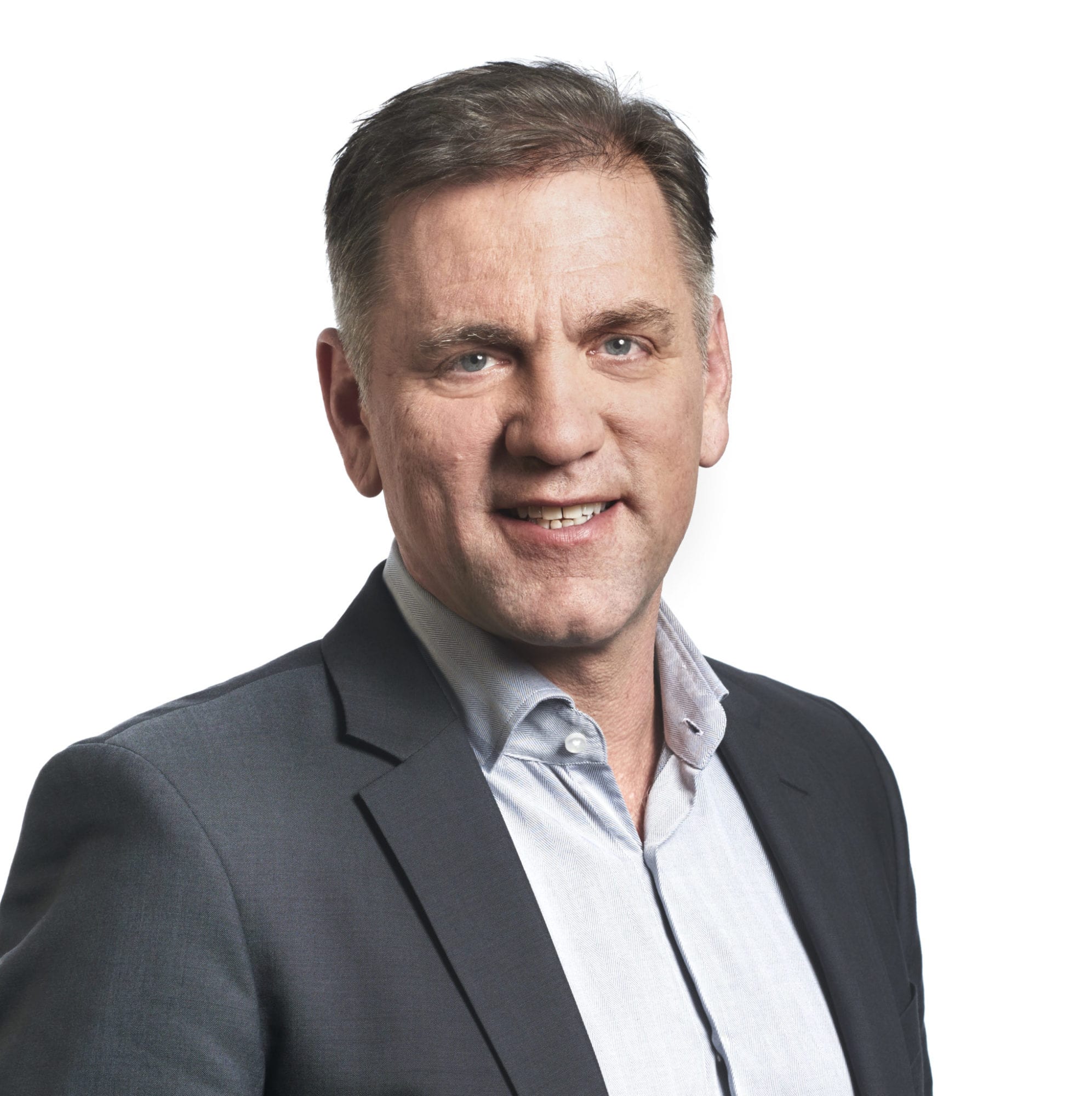
Joerg Walden is Chief Executive Officer and Co-founder of iPoint-systems, a leading provider of software and consulting for sustainable products, value chains, and brands. He draws on 30 years of technology industry leadership, software development expertise, and executive management experience. At iPoint, Joerg is responsible for the business strategy, product strategy, and innovation management. Since its founding in 2001 as a small automotive-focused company, he has transformed iPoint into a multinational, globally operating market leader with a clientele of tens of thousands of companies from various industry sectors. Joerg places great value upon an open, continuous culture of innovation, a high degree of customer focus, a global partner network, and the monitoring of relevant standards and trends in order to provide solutions that are always one step ahead. He is driven by the vision of how today’s solutions can contribute to securing a sustainable world for future generations. Joerg’s commitment is frequently recognized and honoured, including the designation as Gartner Cool Vendor in Green IT and Sustainability (2012), the Verdantix Smart Innovators Badge for Product Stewardship Solutions (2015), the TOP Innovator of the Year award (2016), the recognition as one of Germany’s 100 top innovators and visionaries by the leading German business newspaper Handelsblatt (2017), the Verdantix EH&S Innovation Award (2017), the The Silicon Review Magazine’s ‘50 Most Trustworthy Companies of the Year‘ Award (2018), and the APAC CIO Outlook ‘Top 10 Compliance Solutions Providers’ Award (2019).
